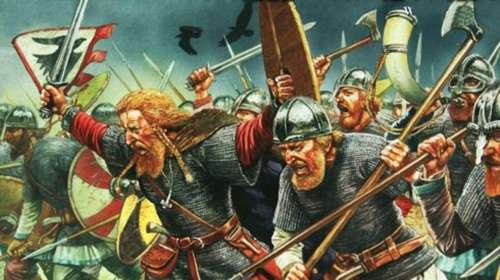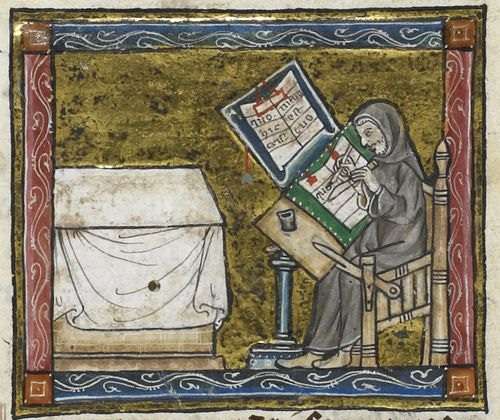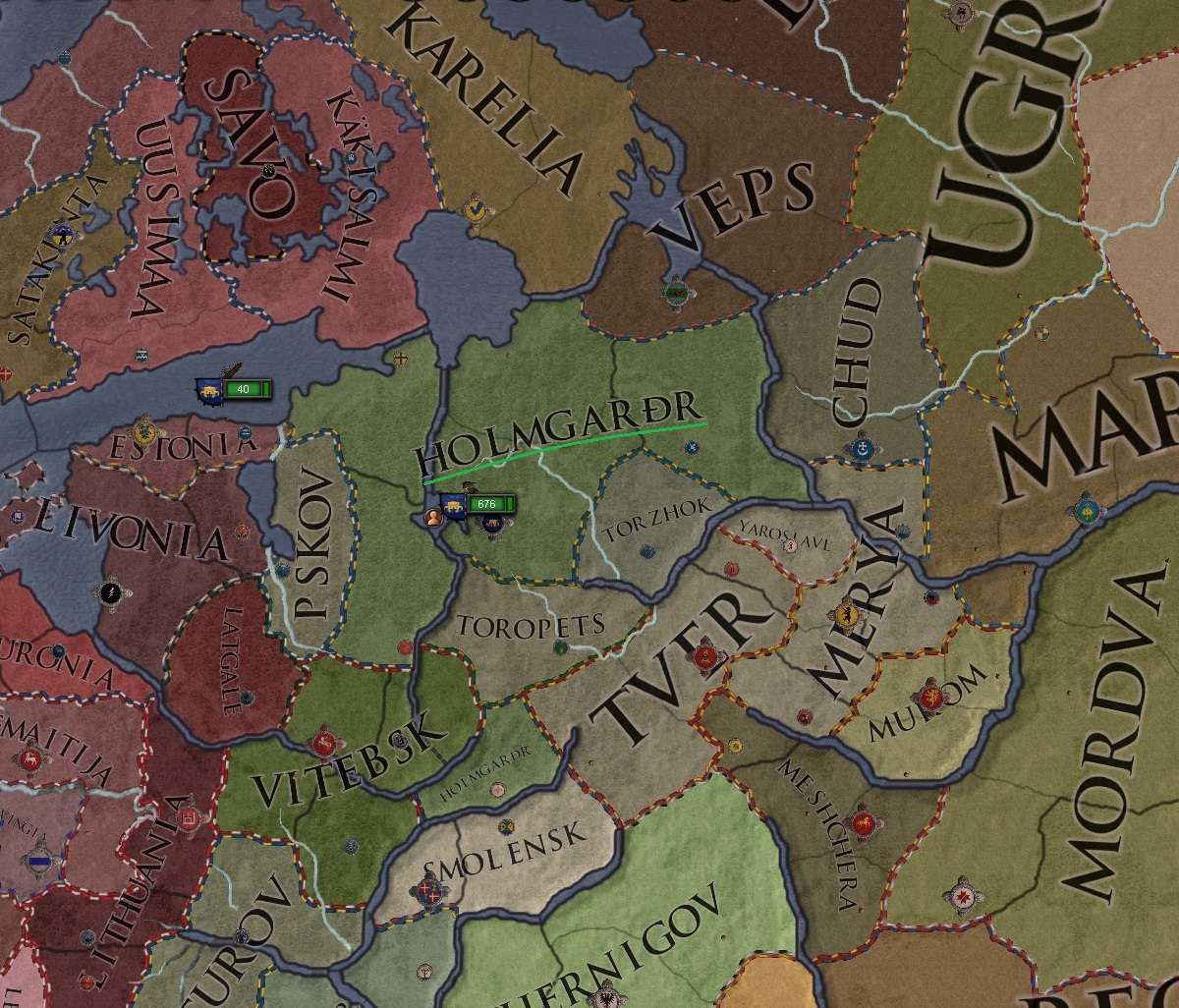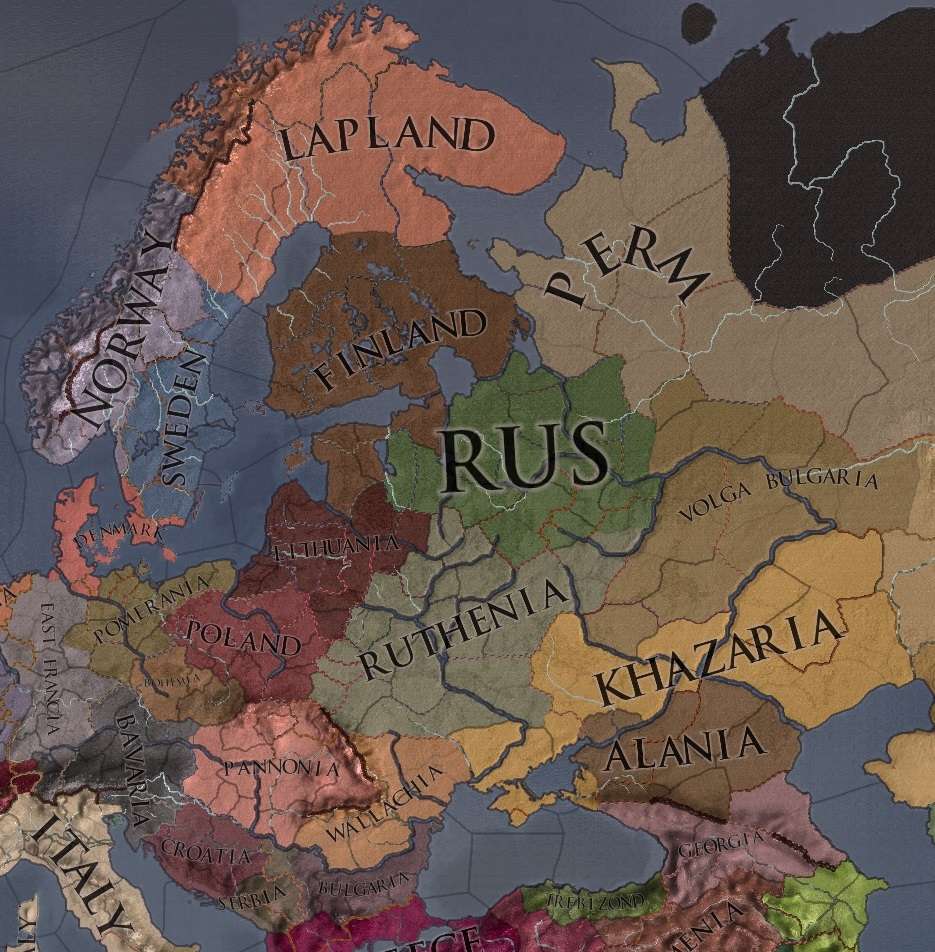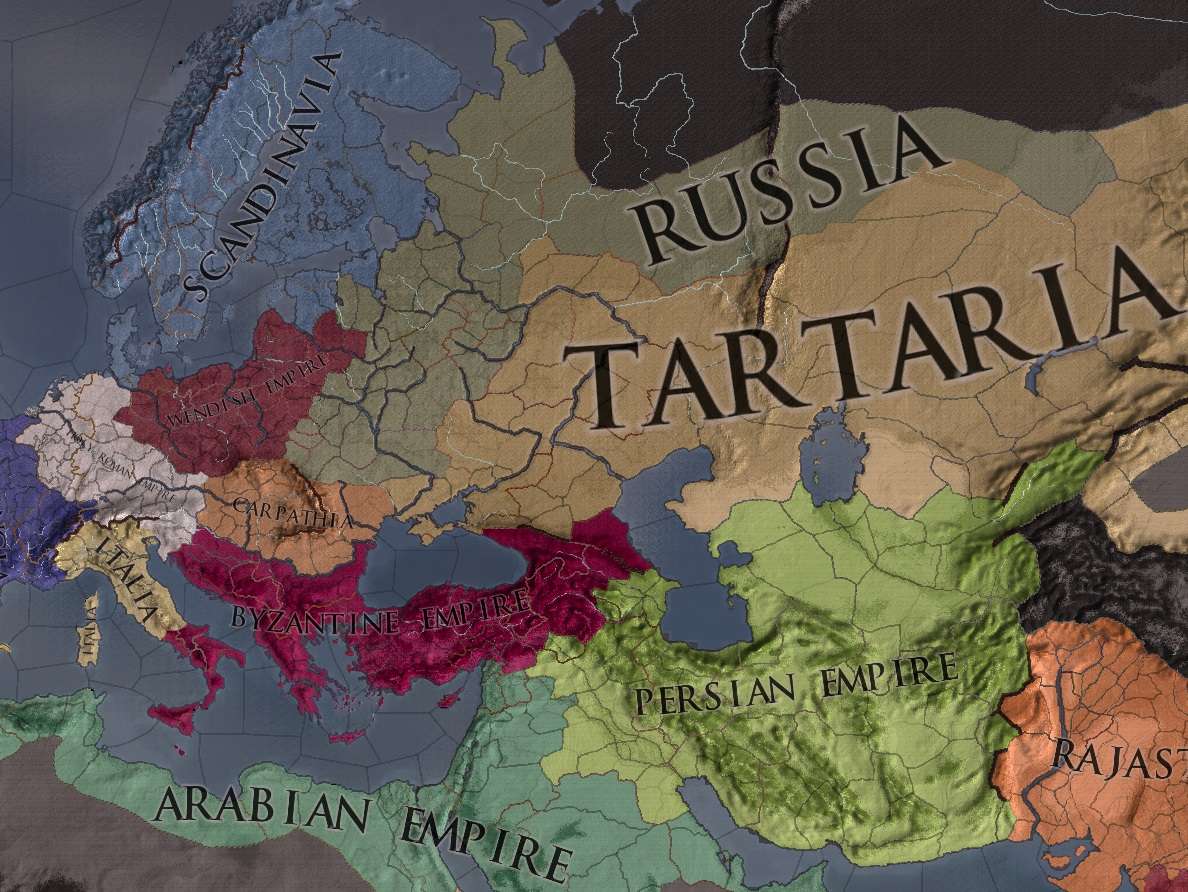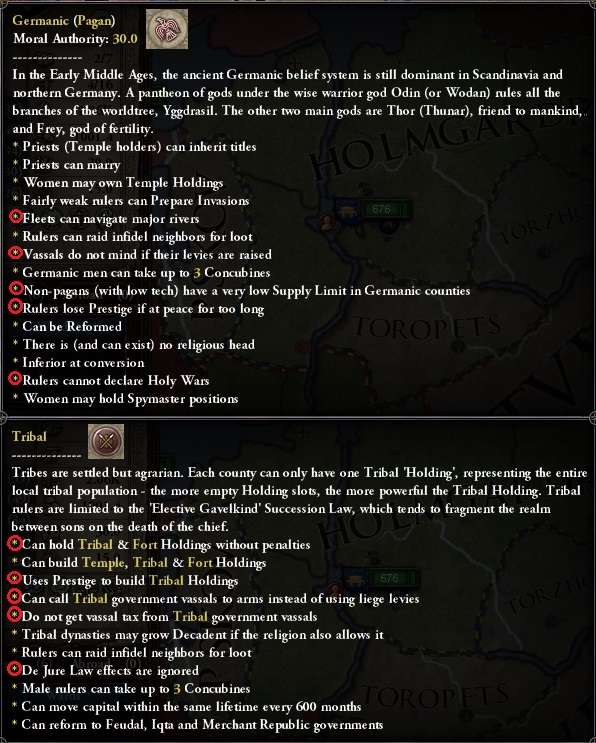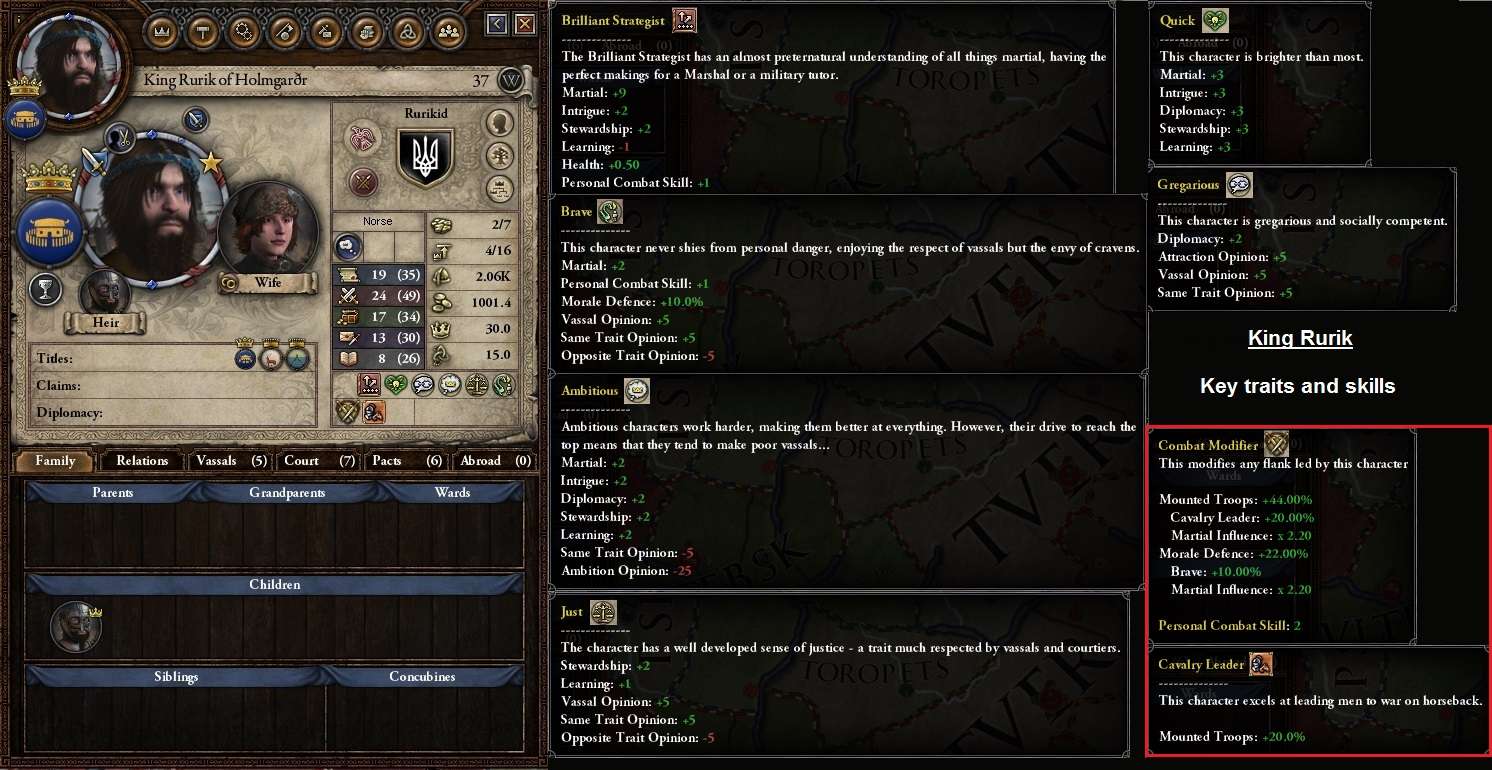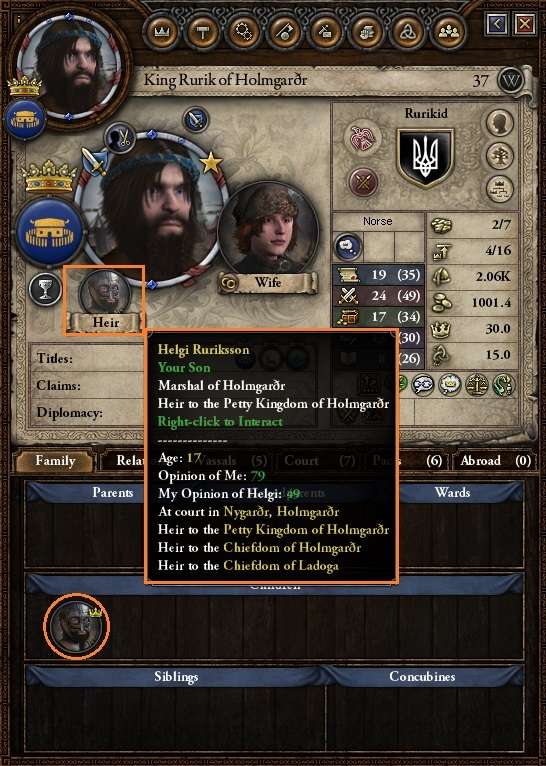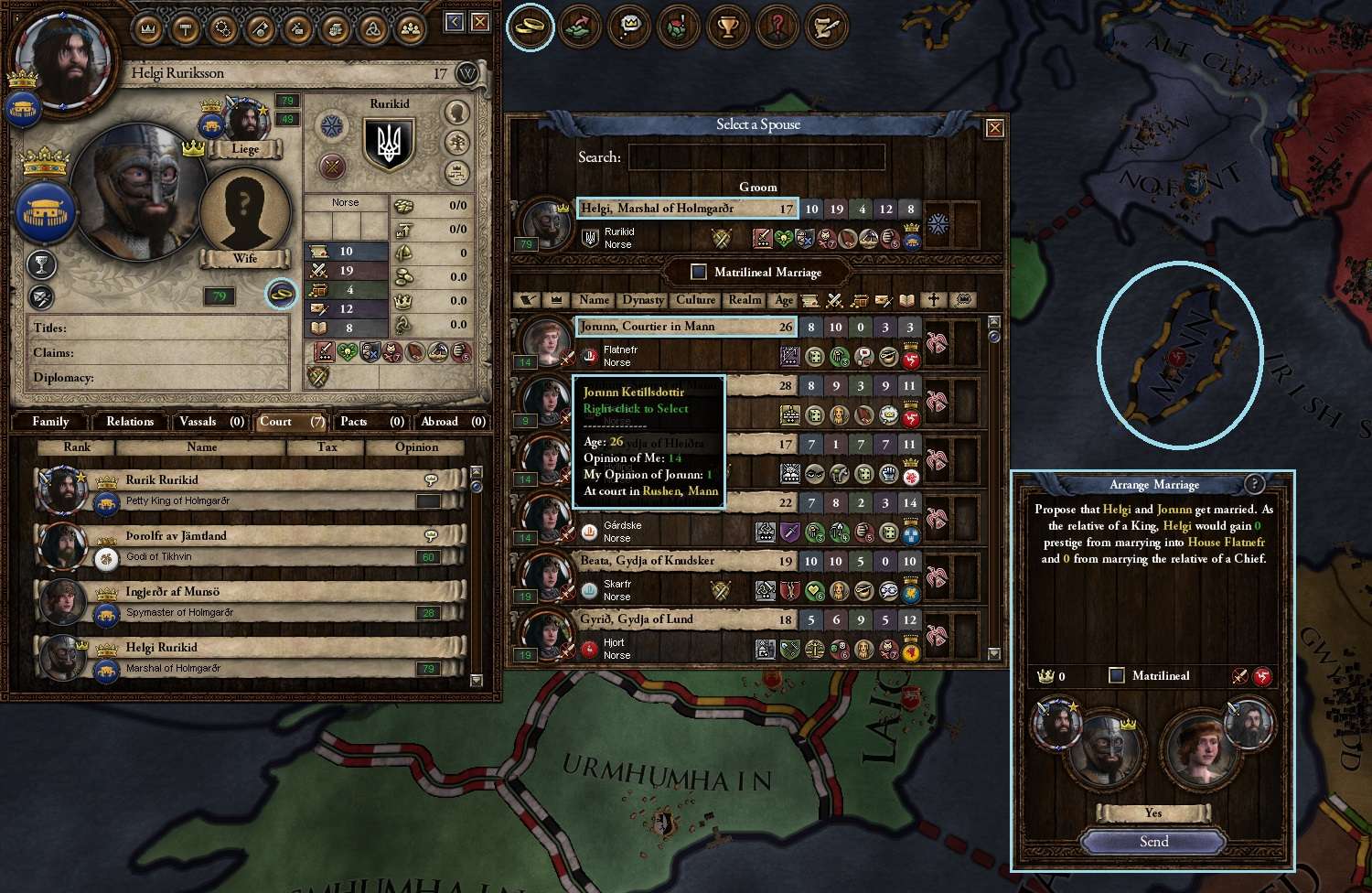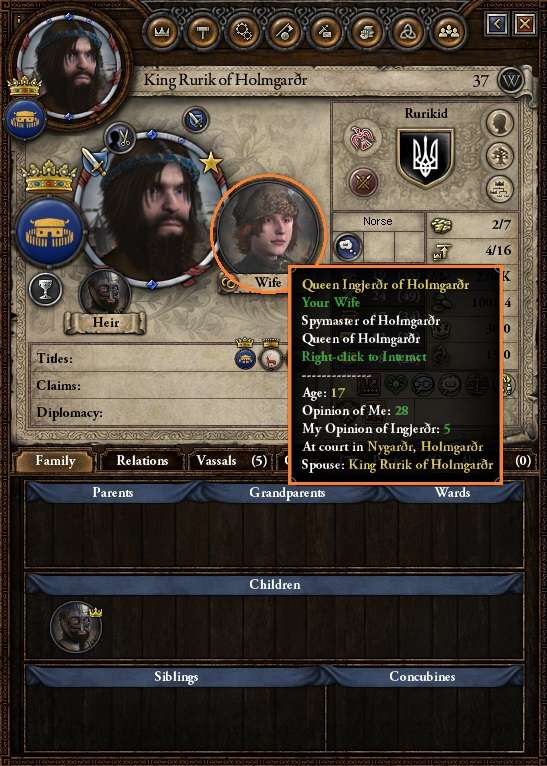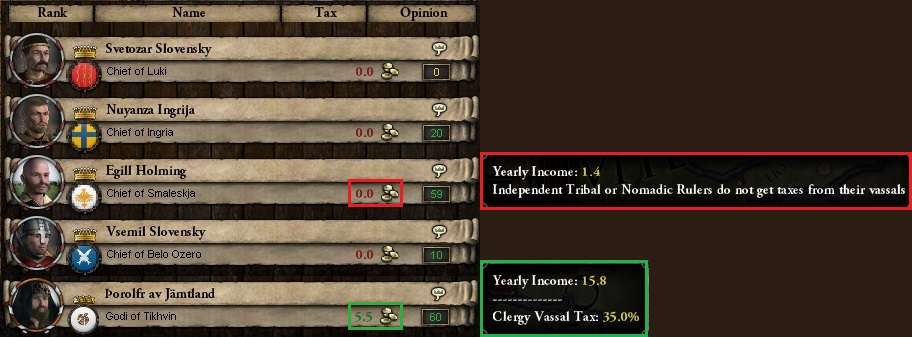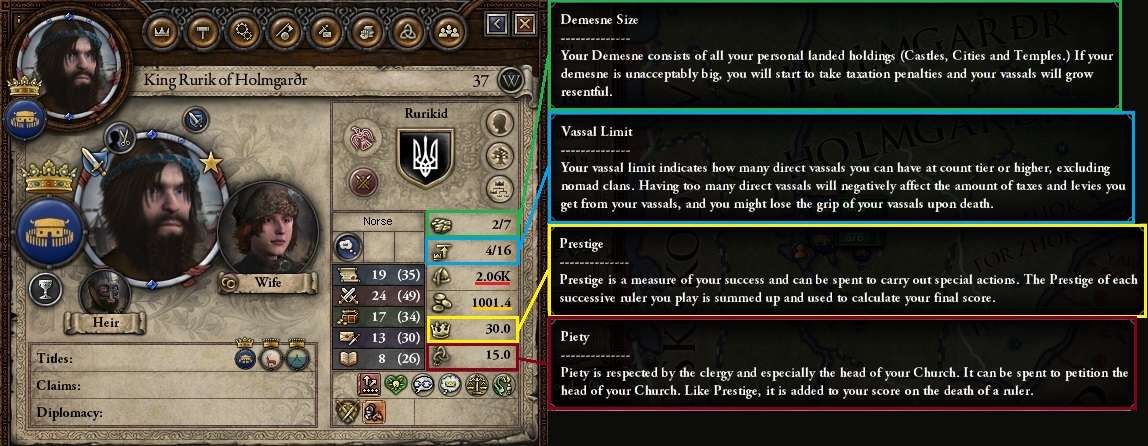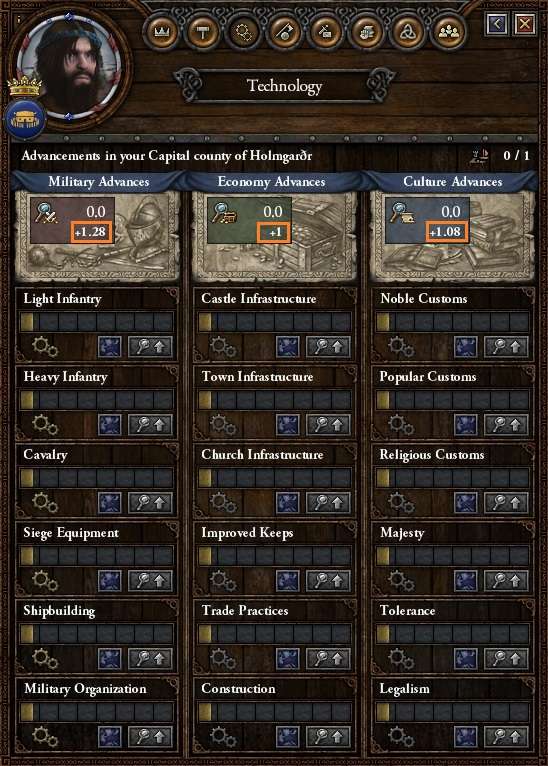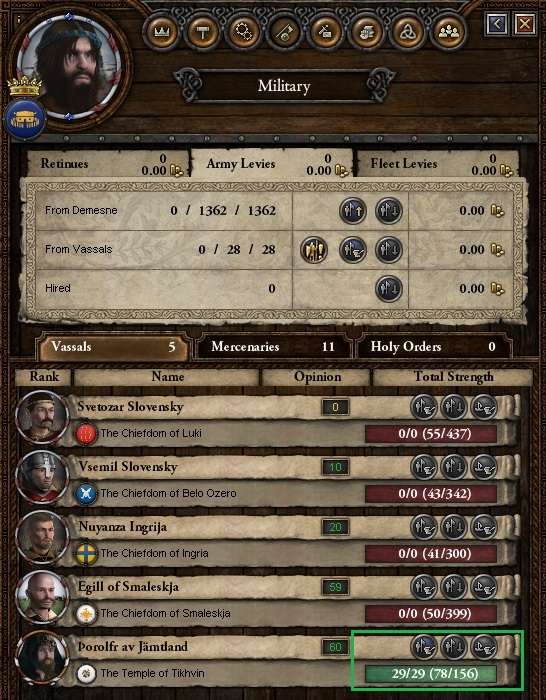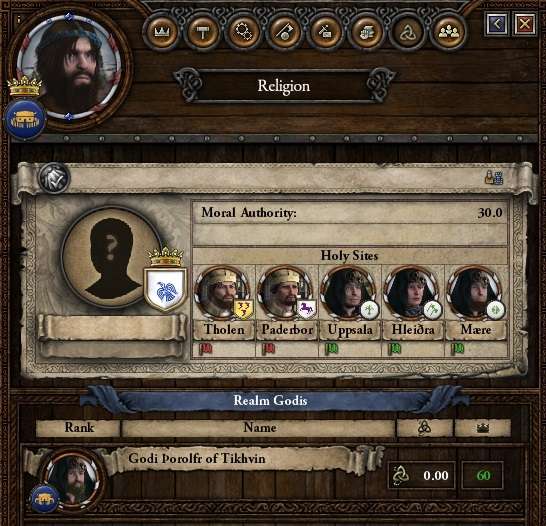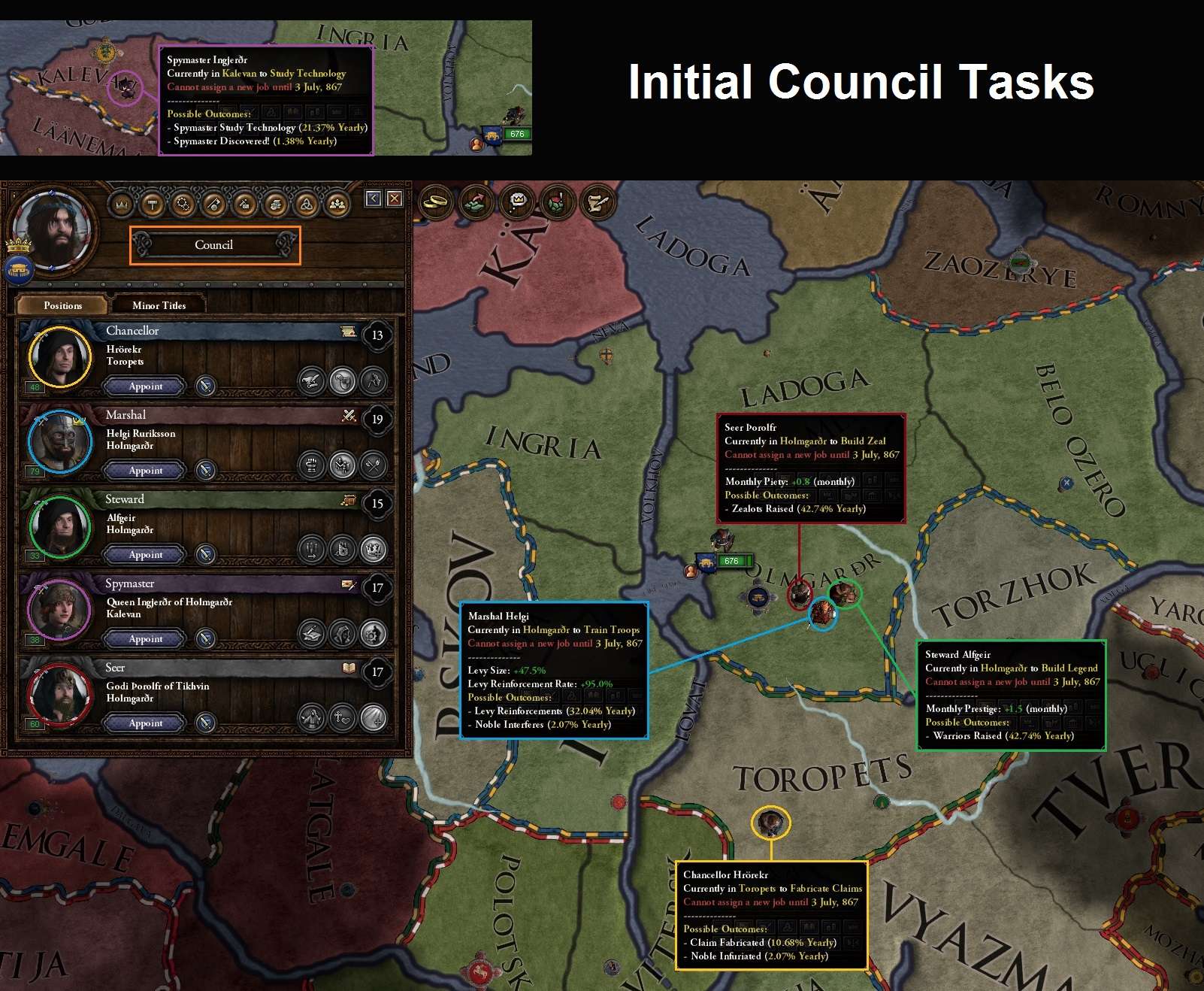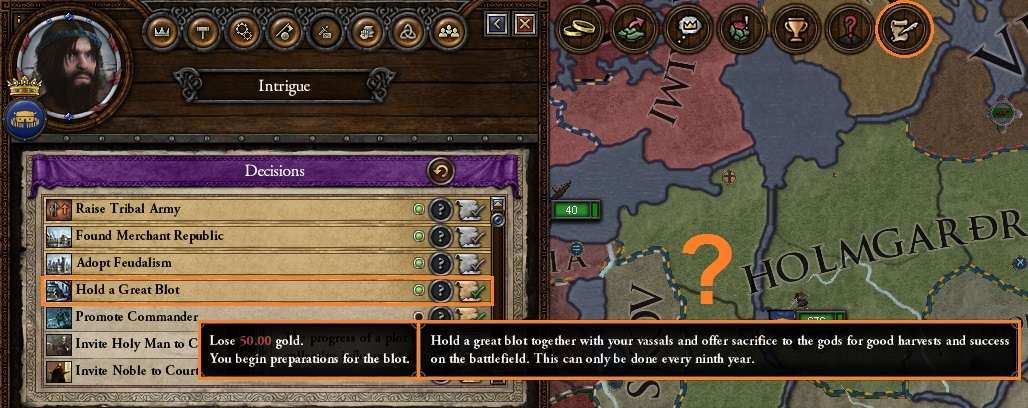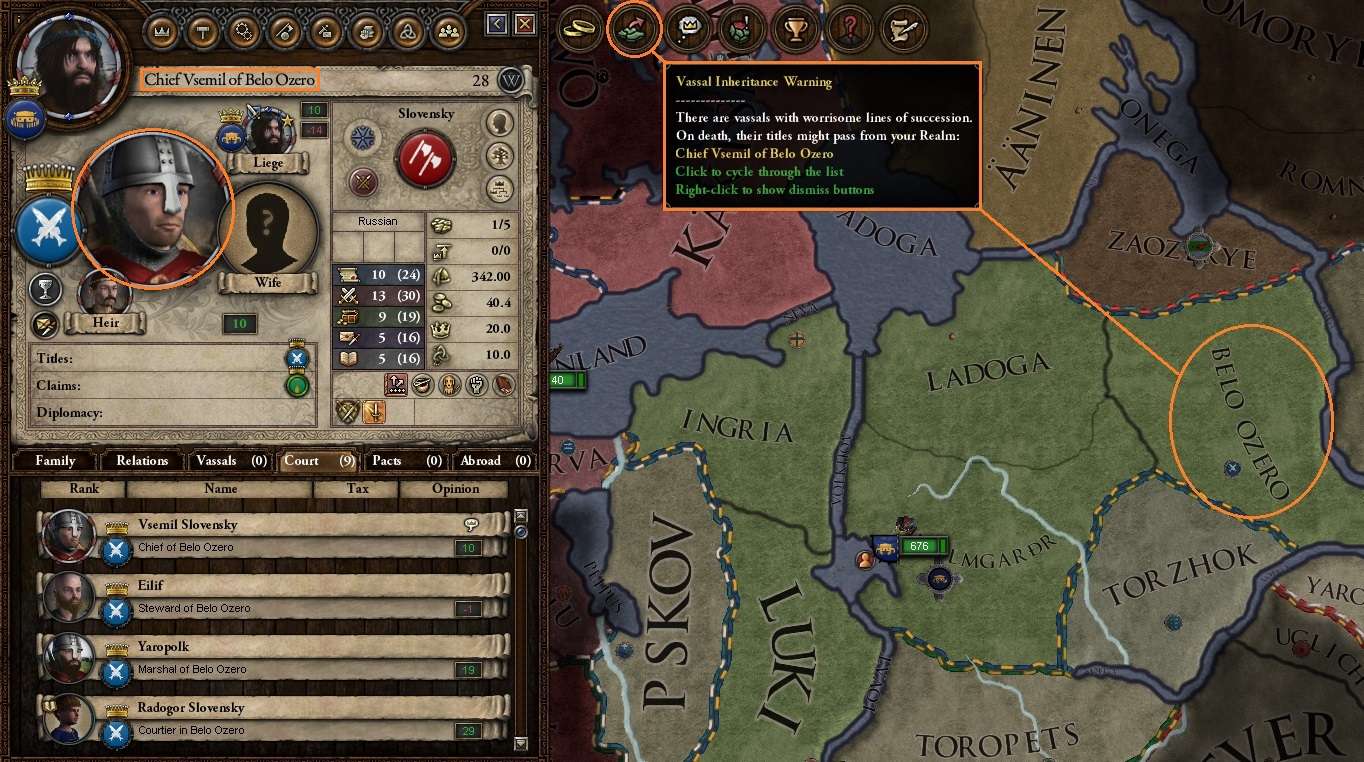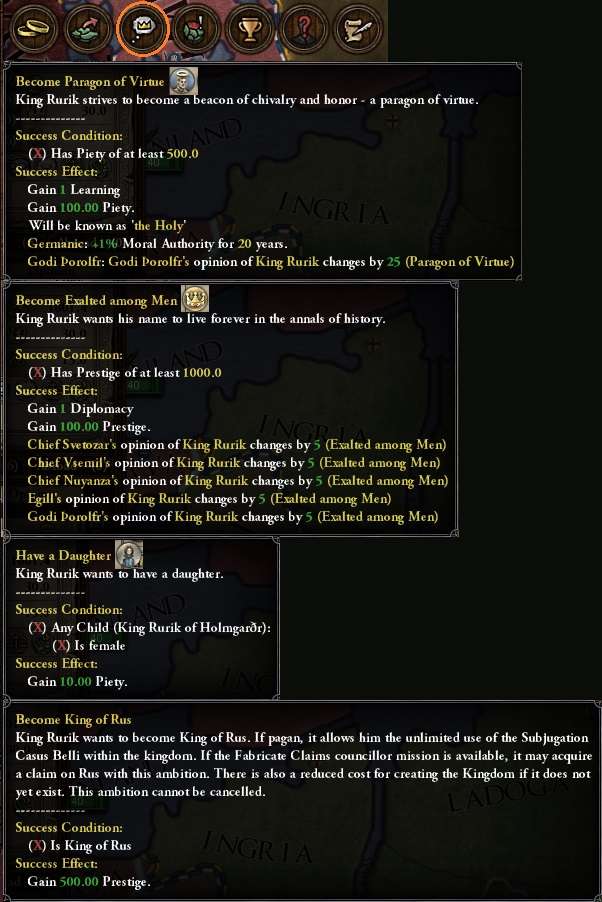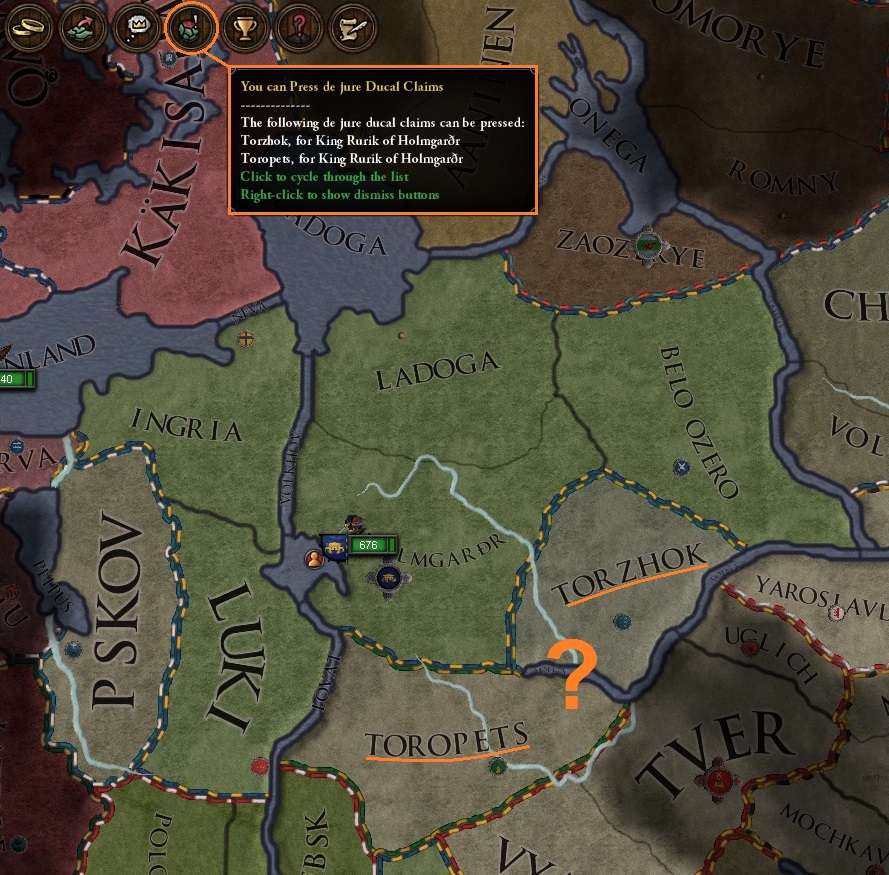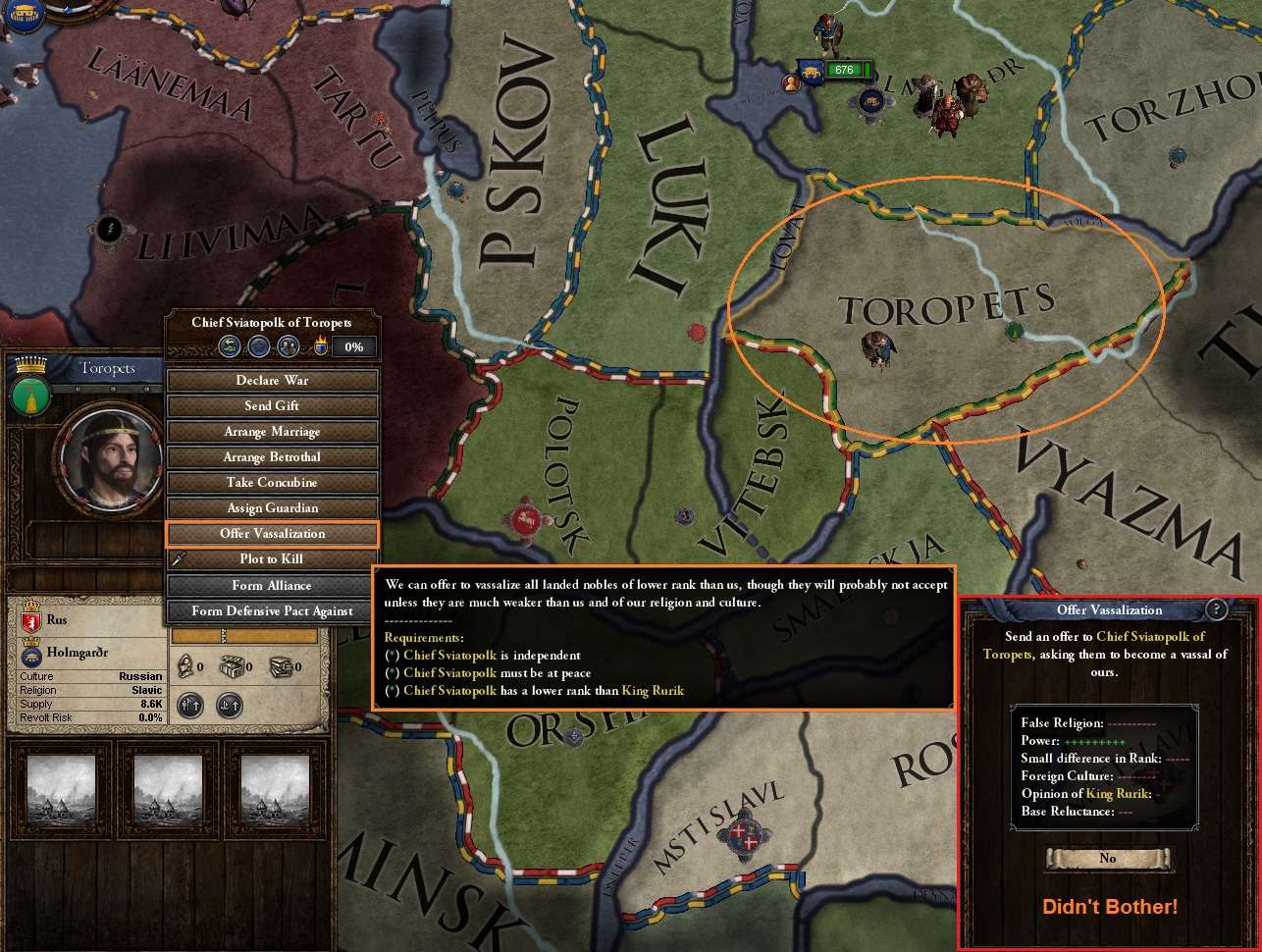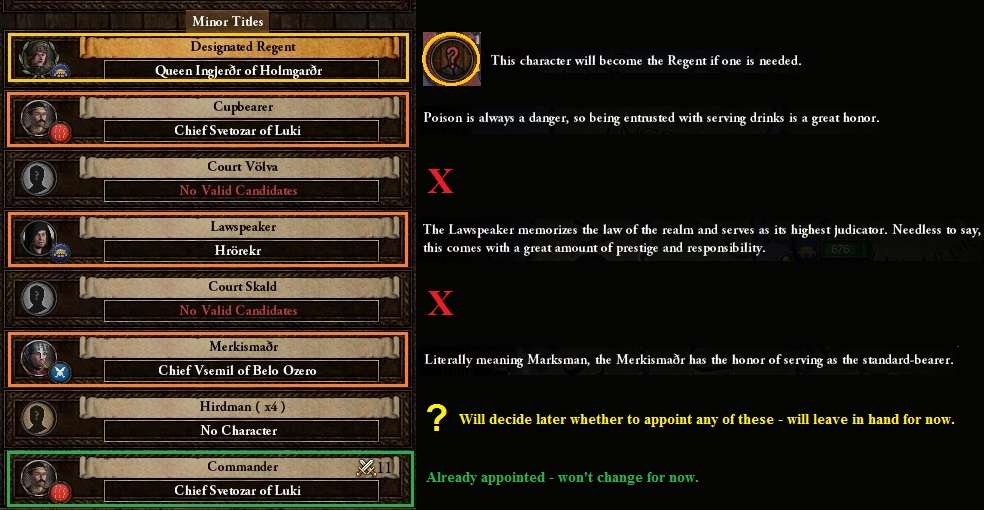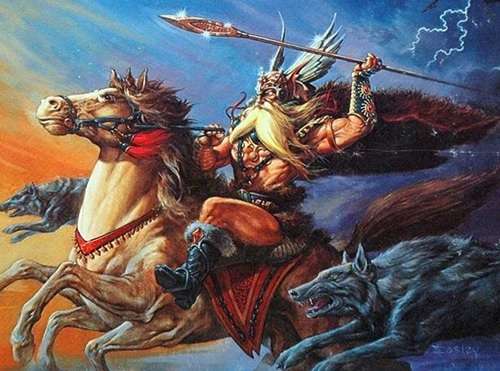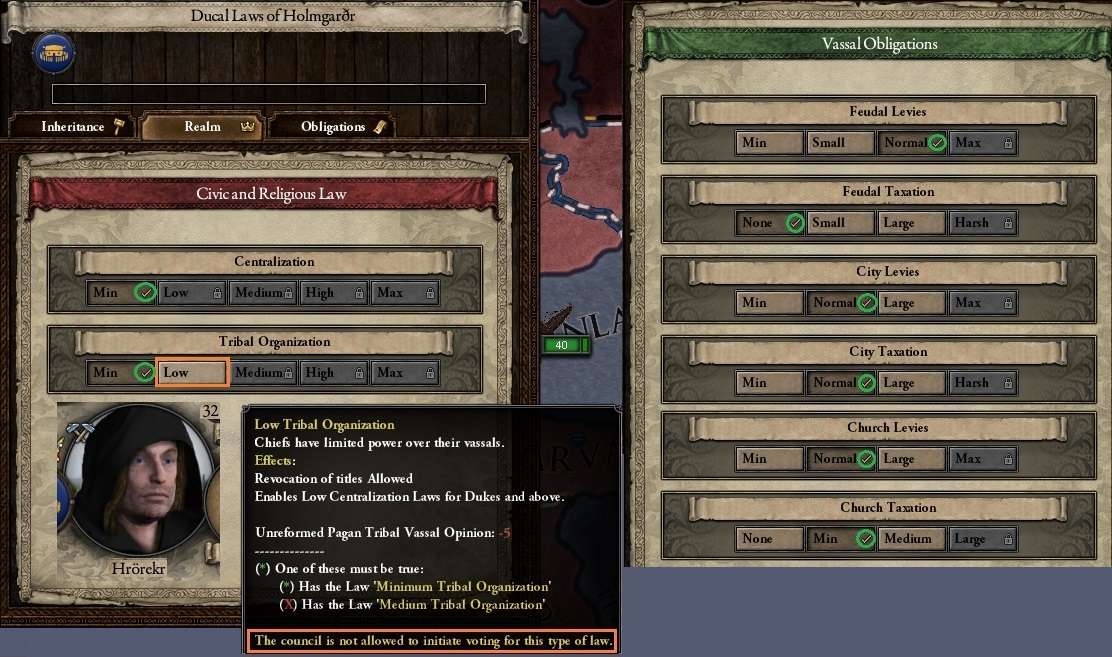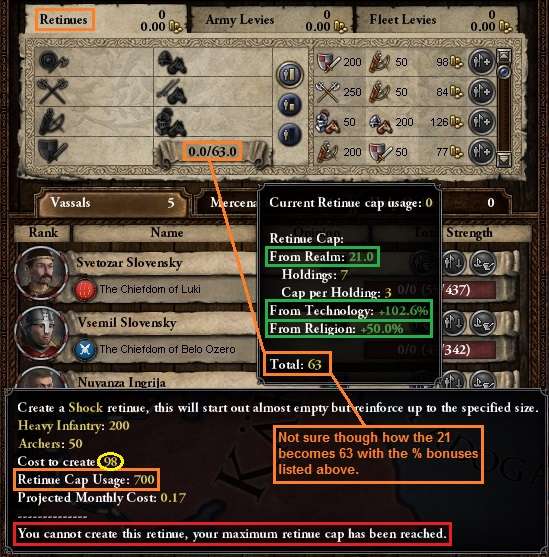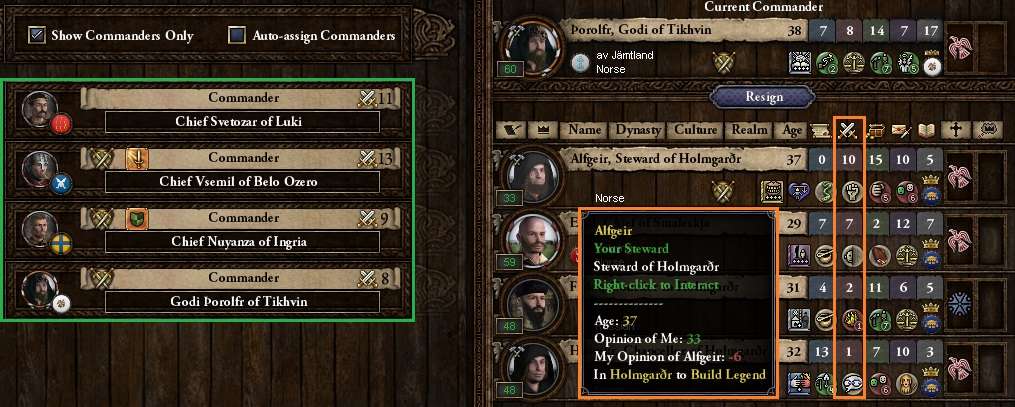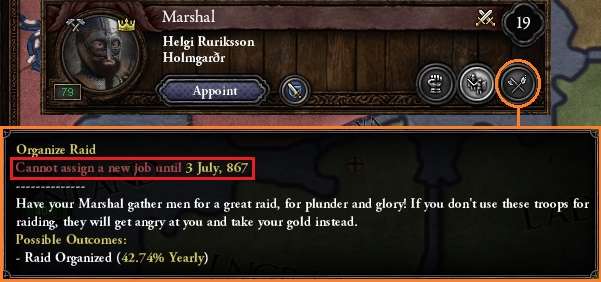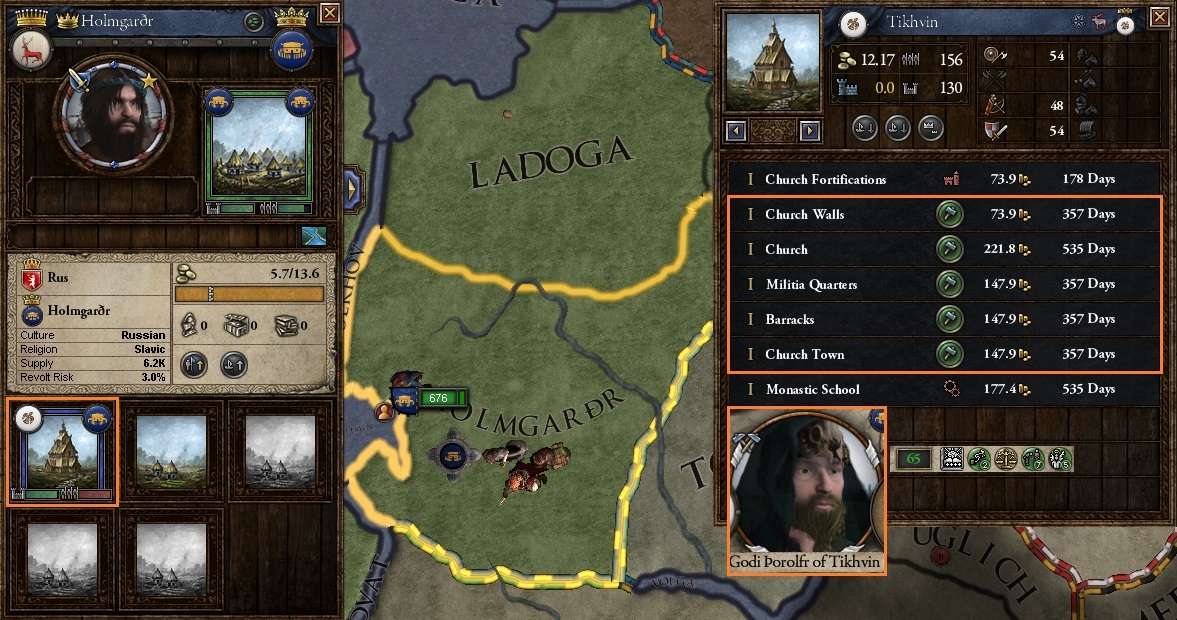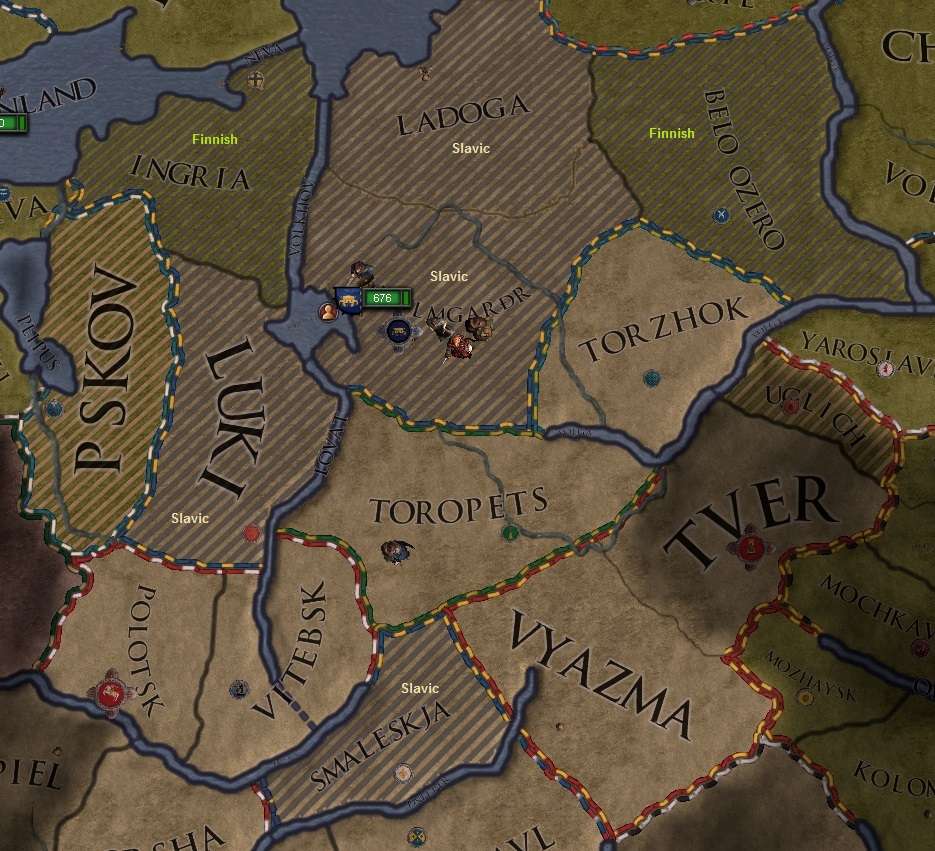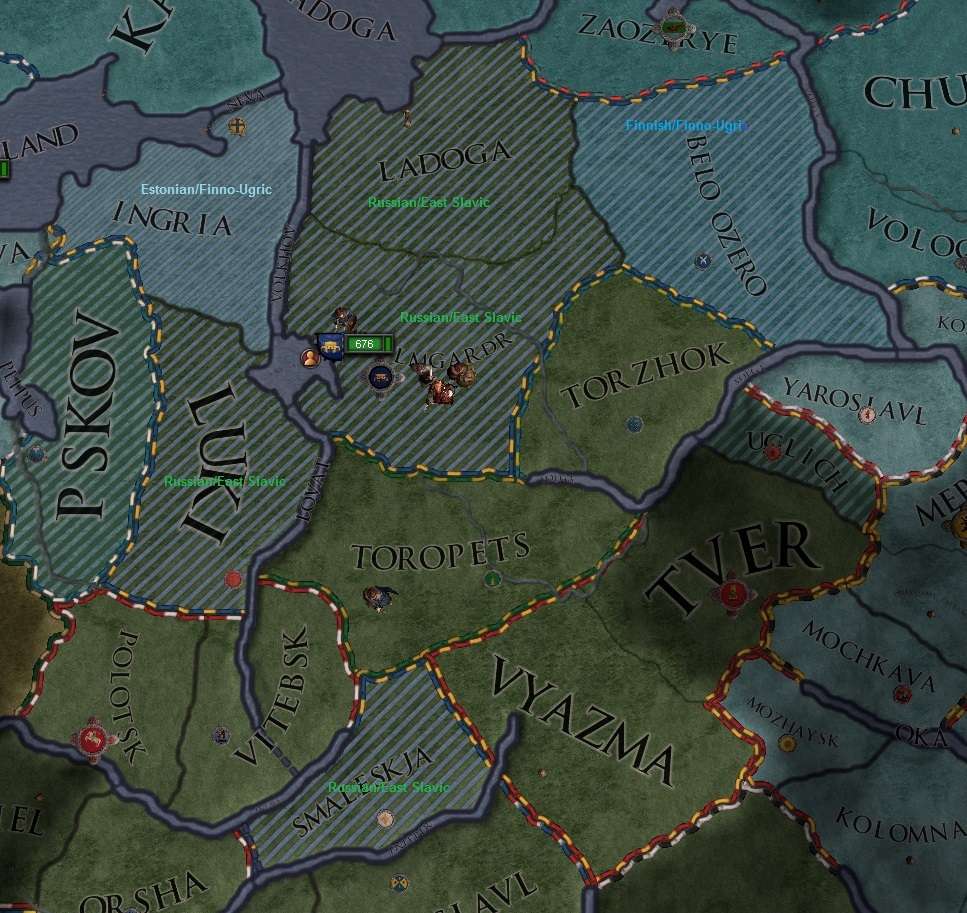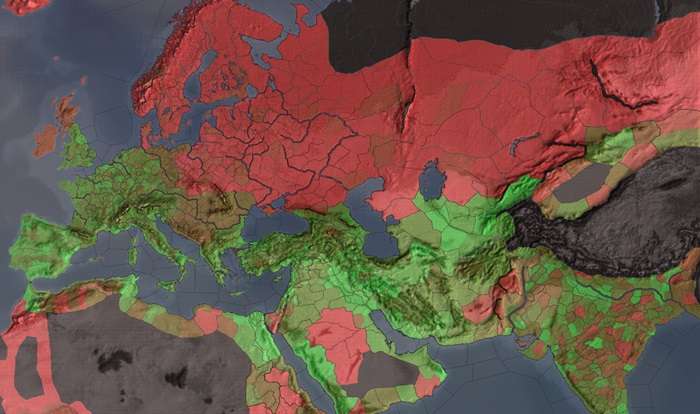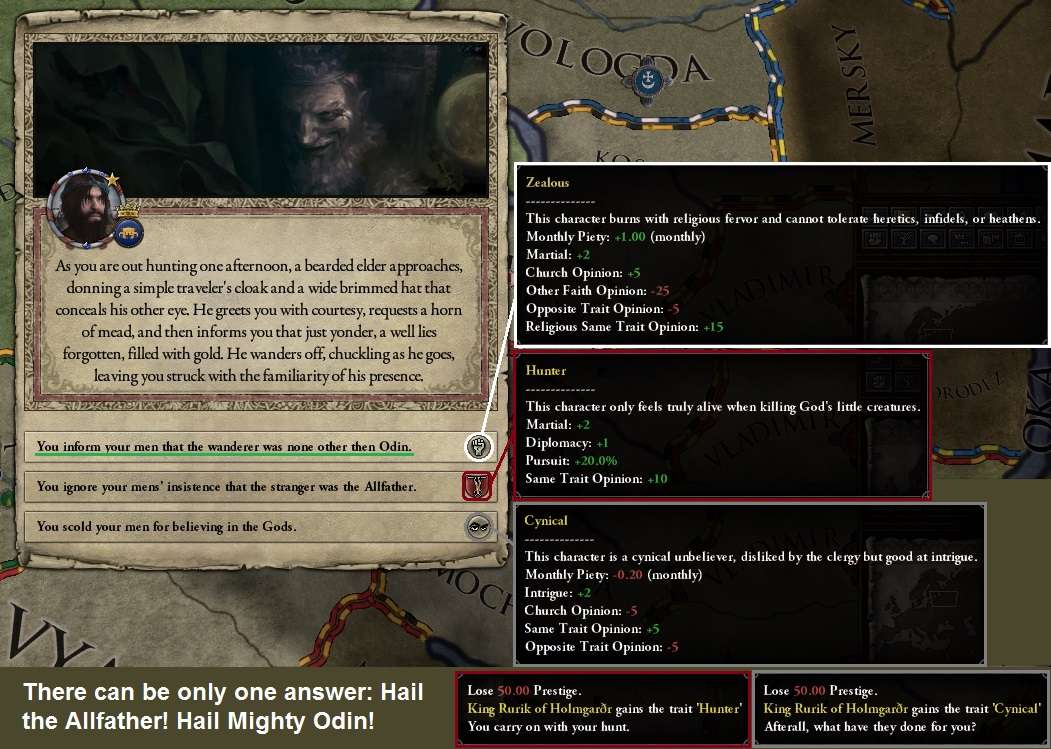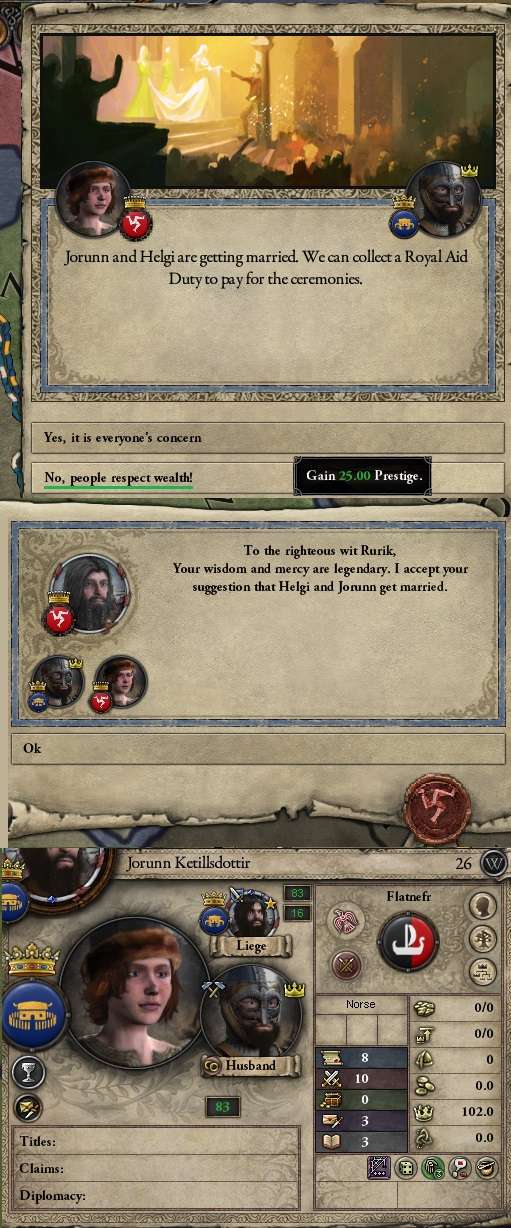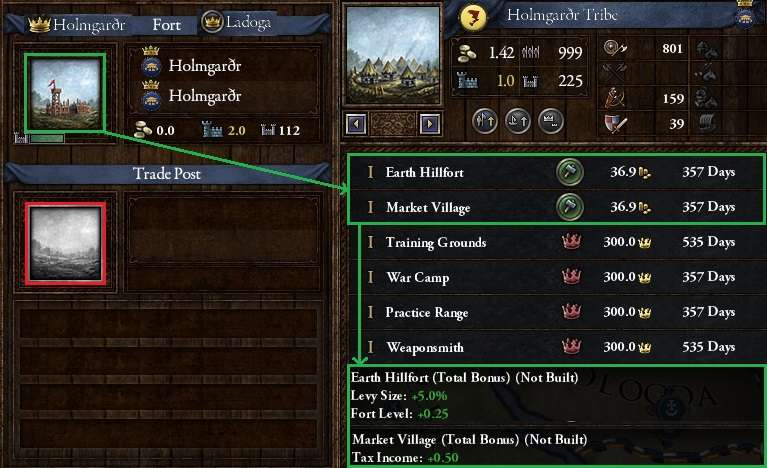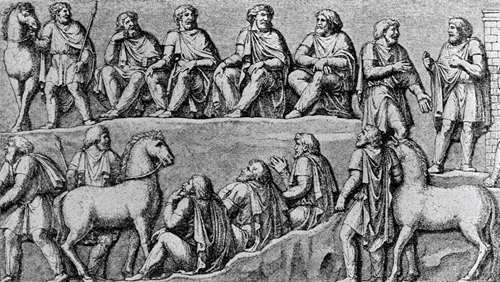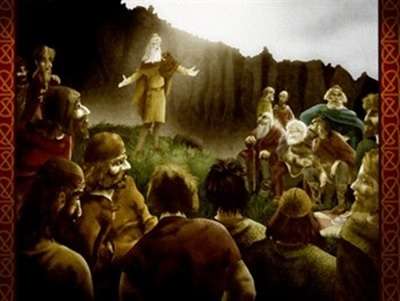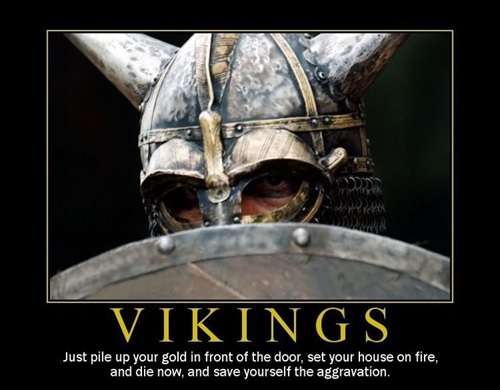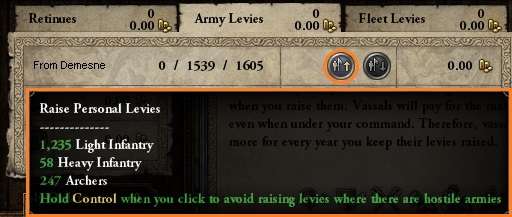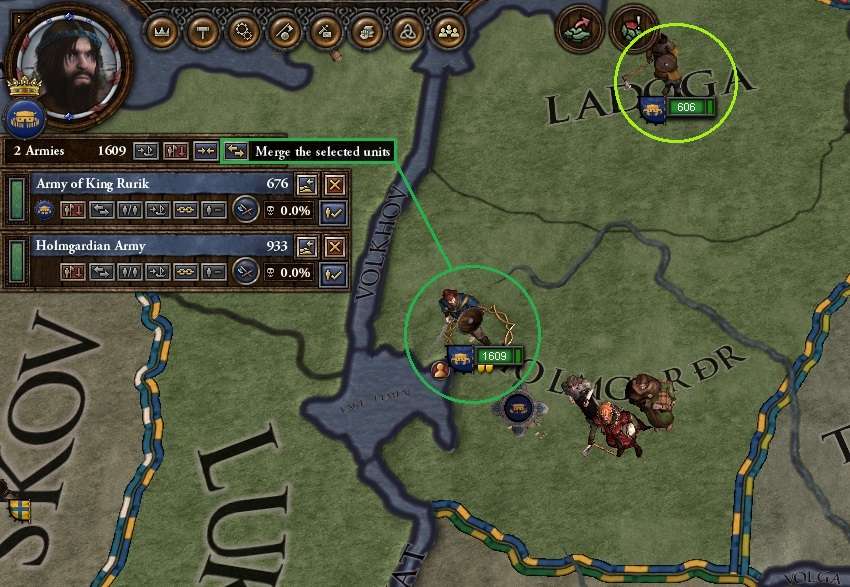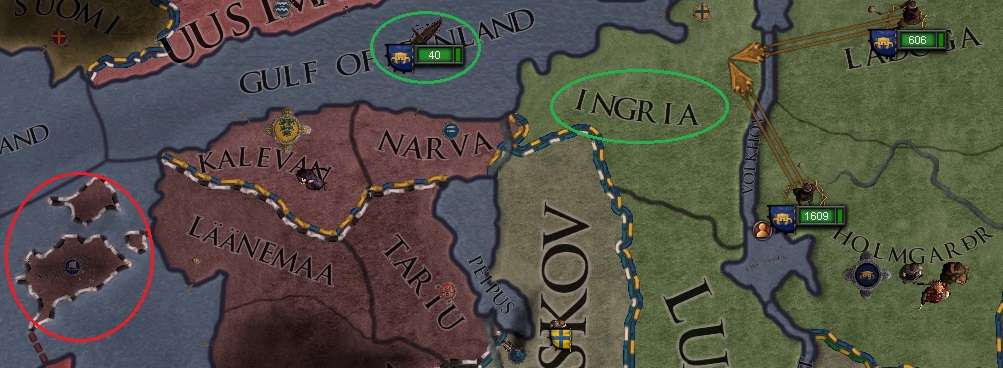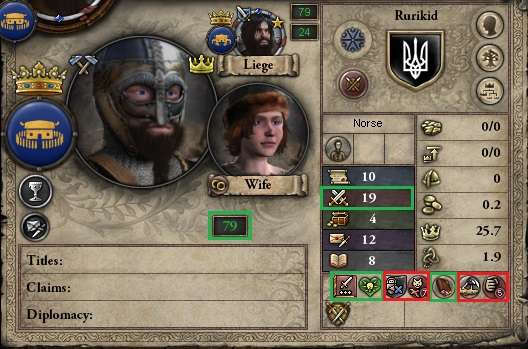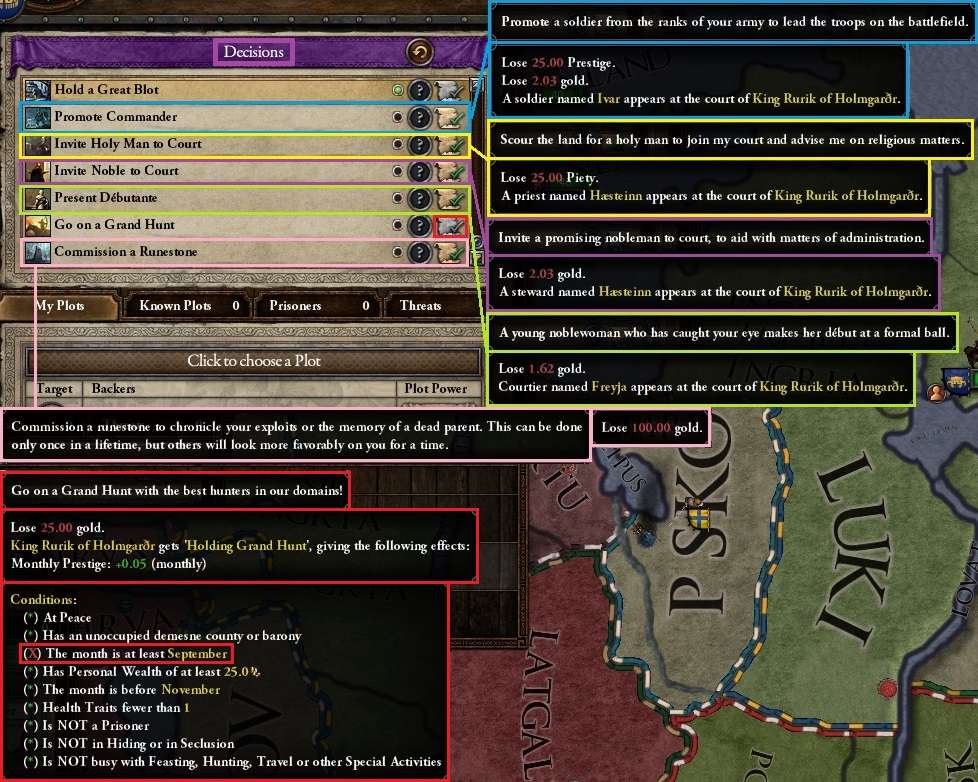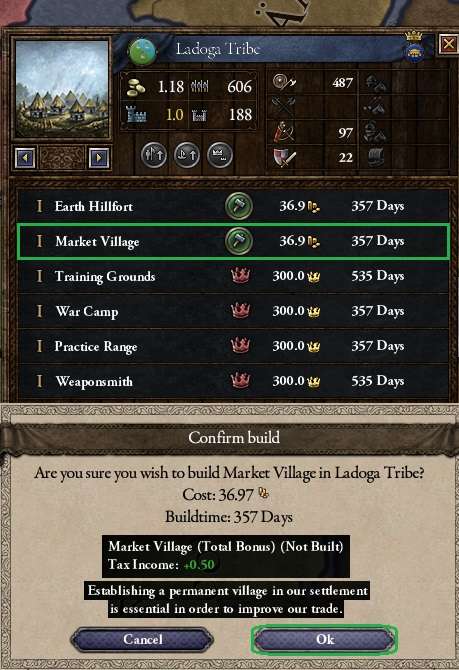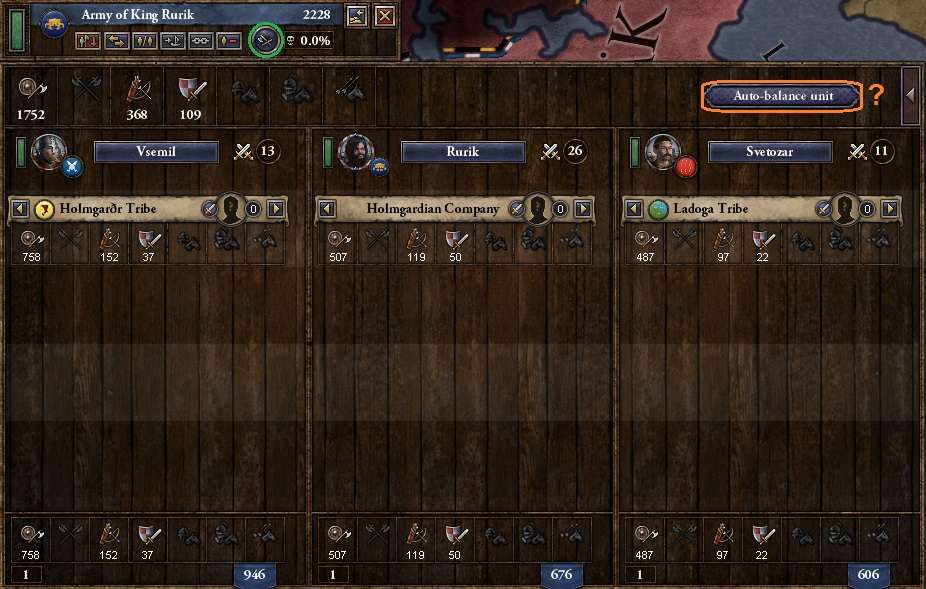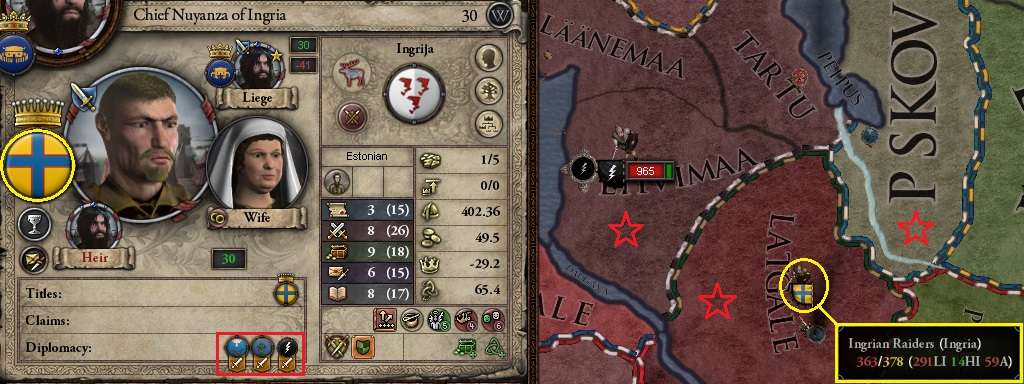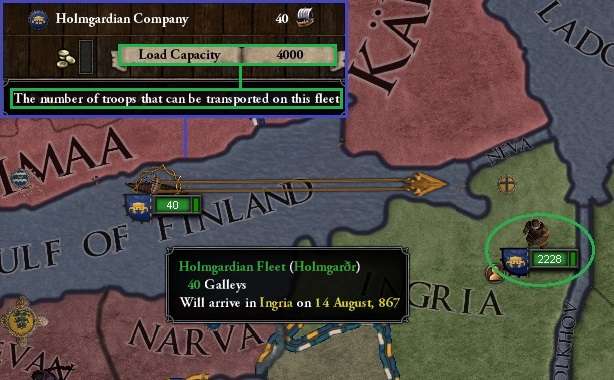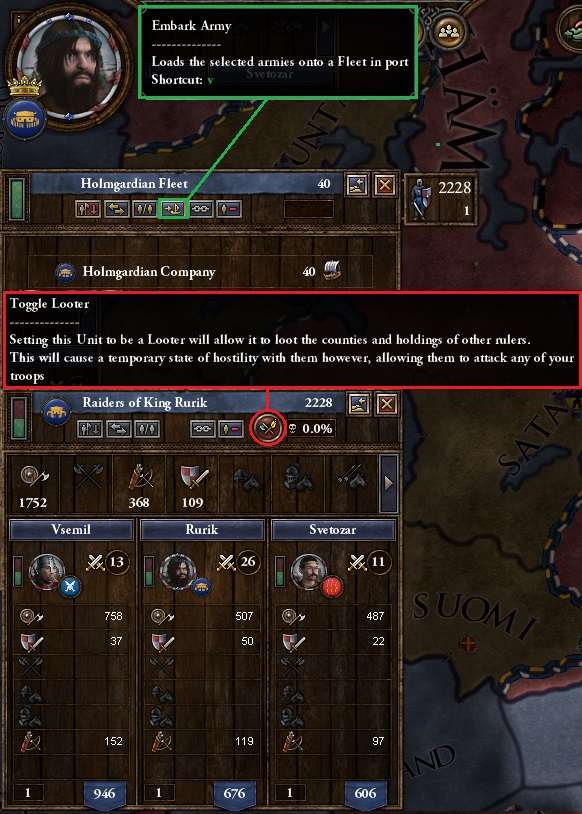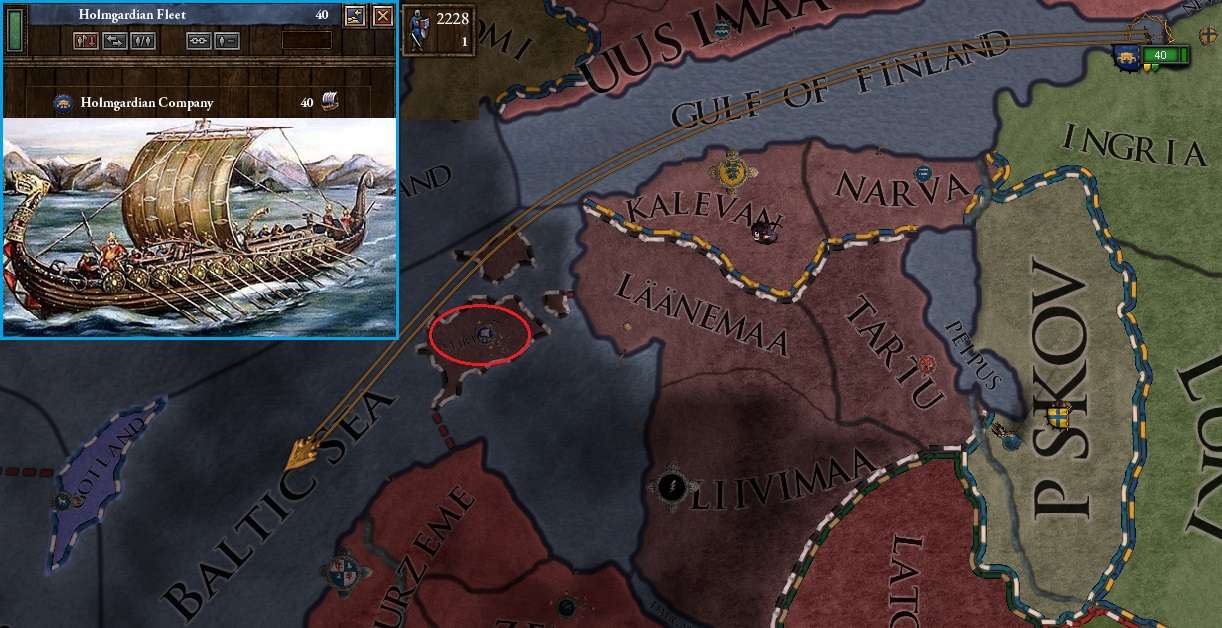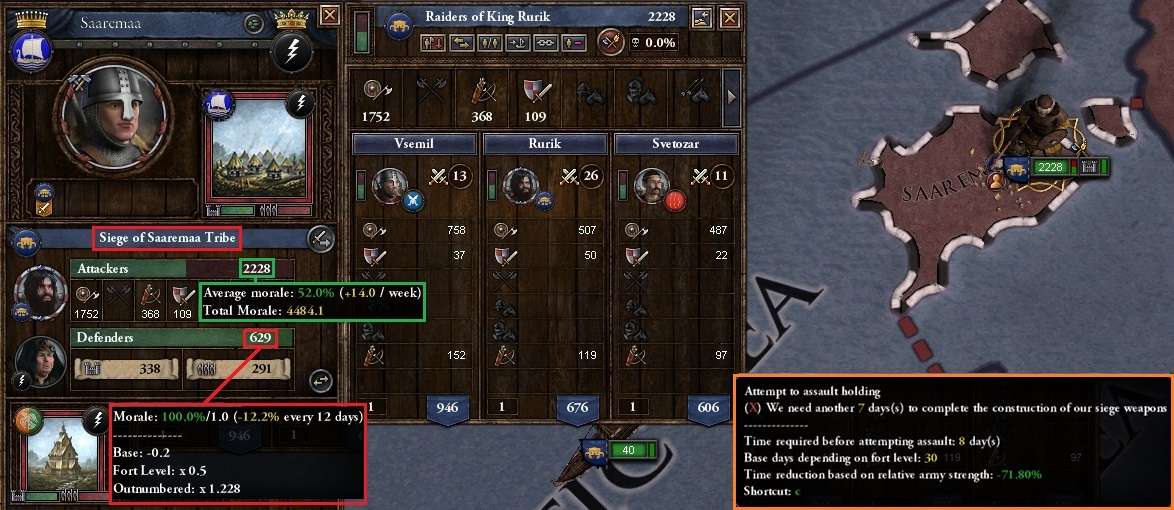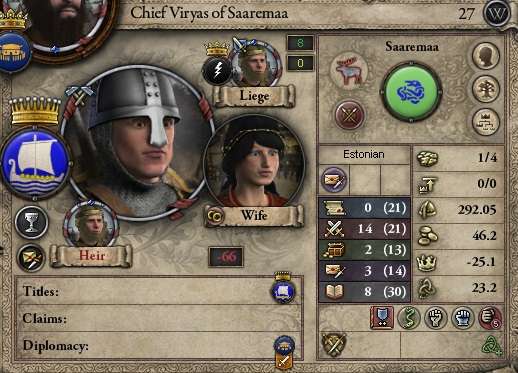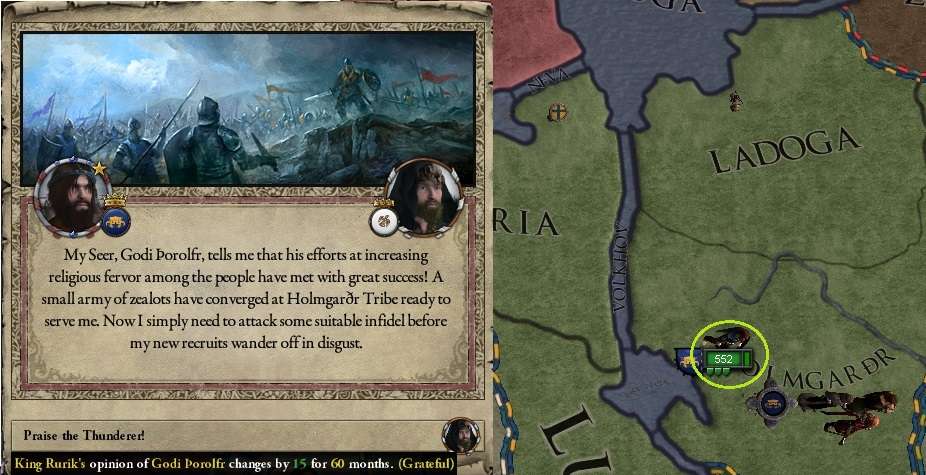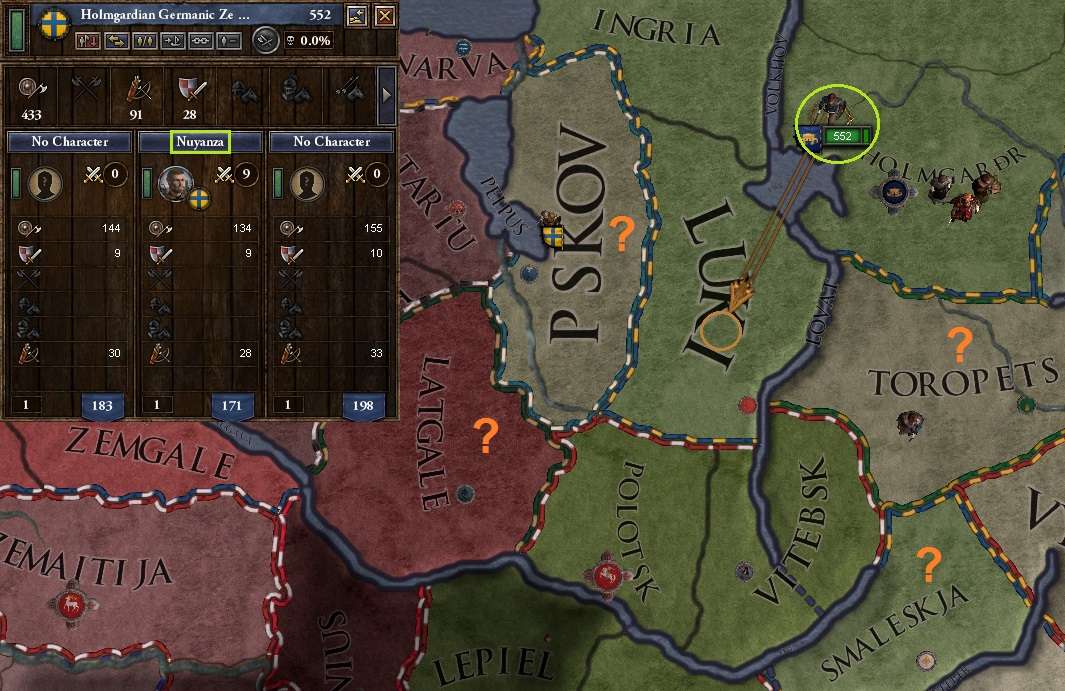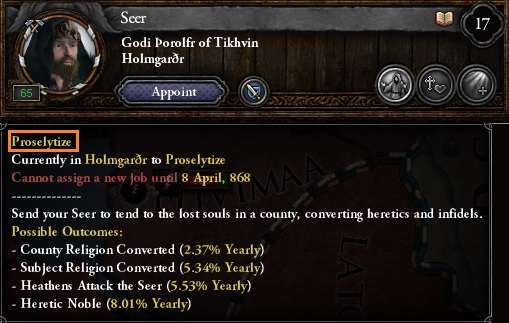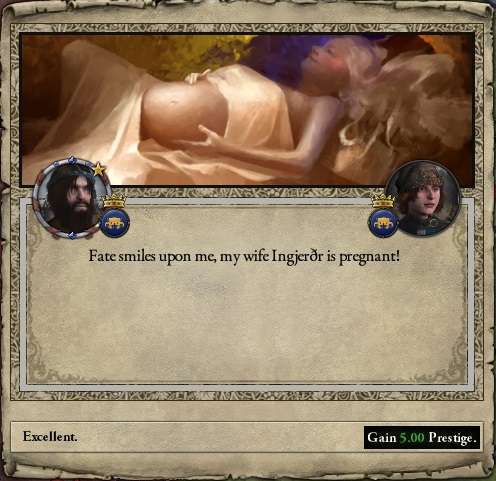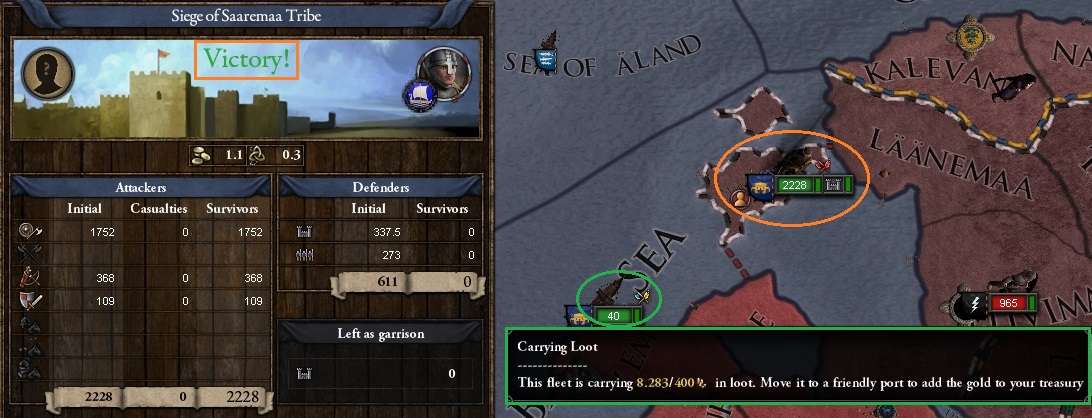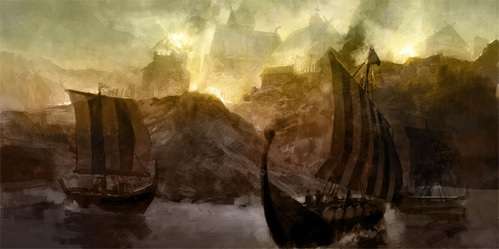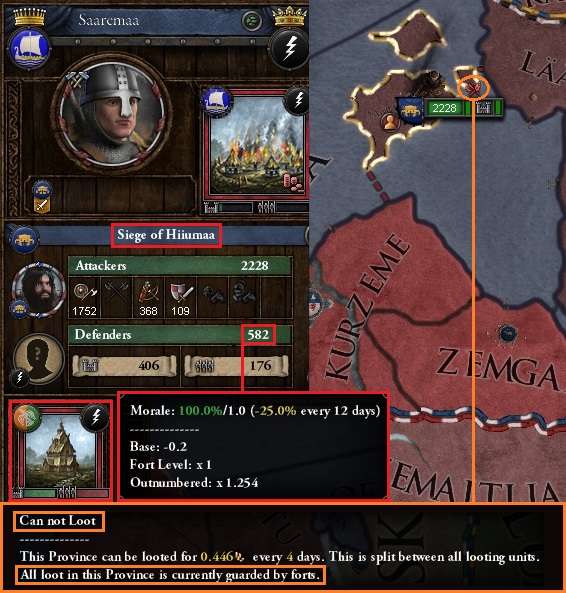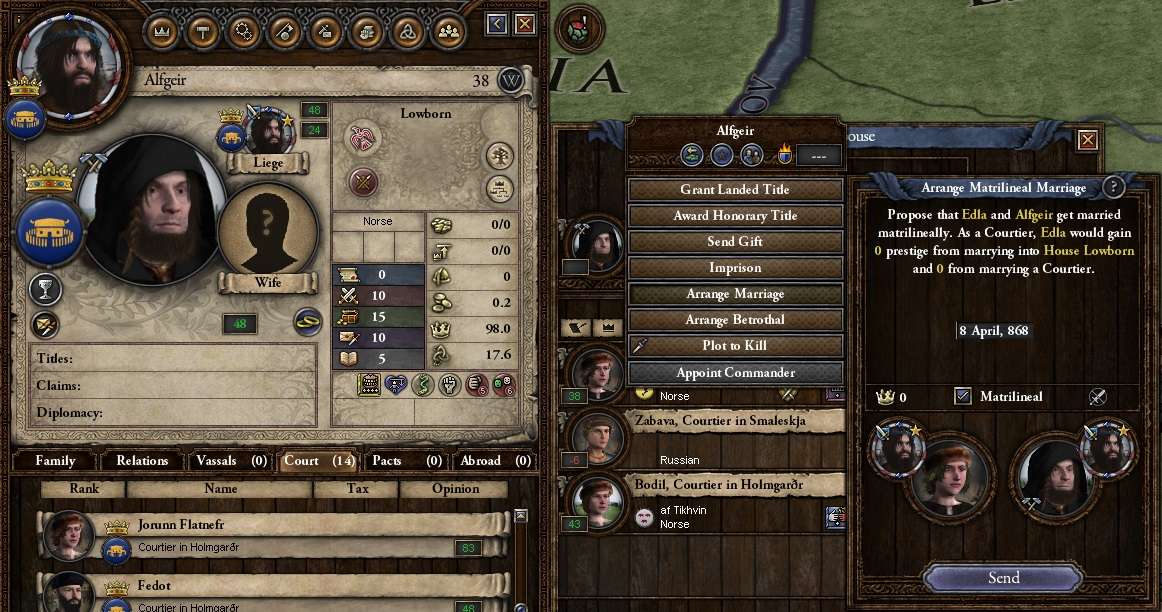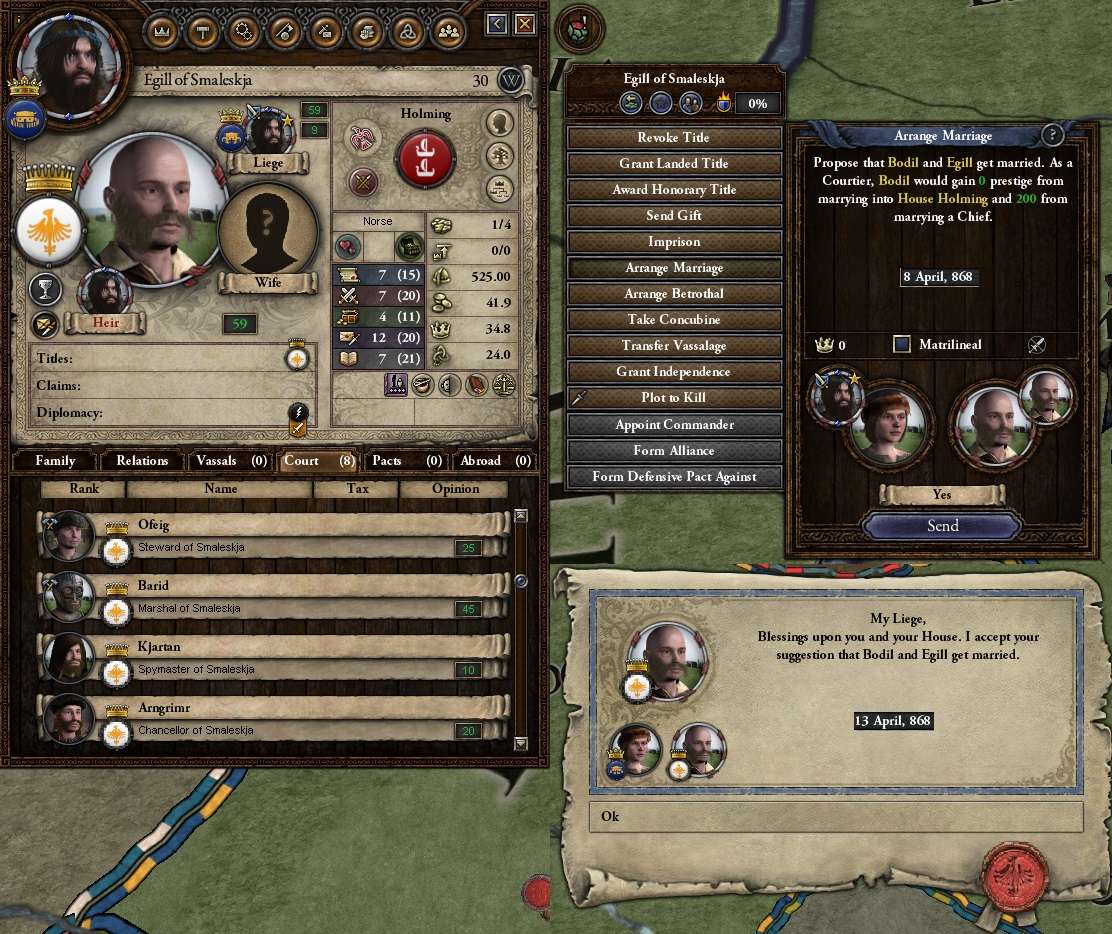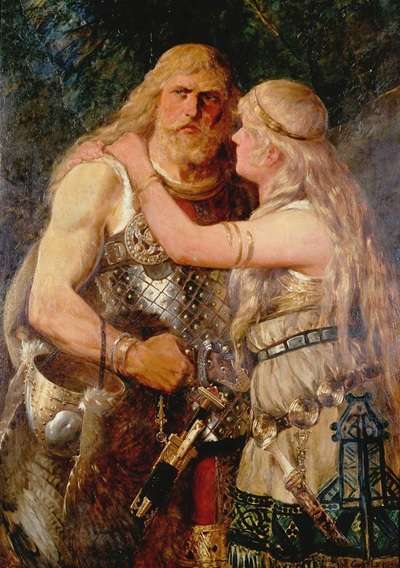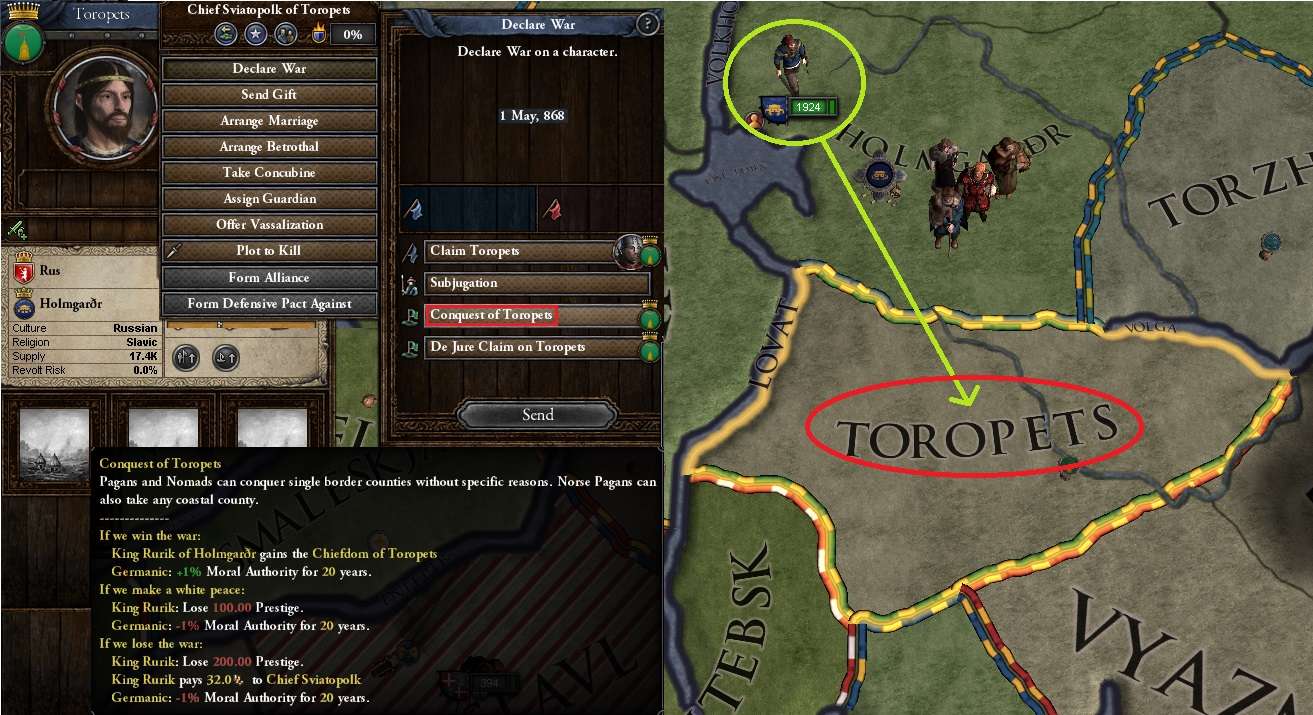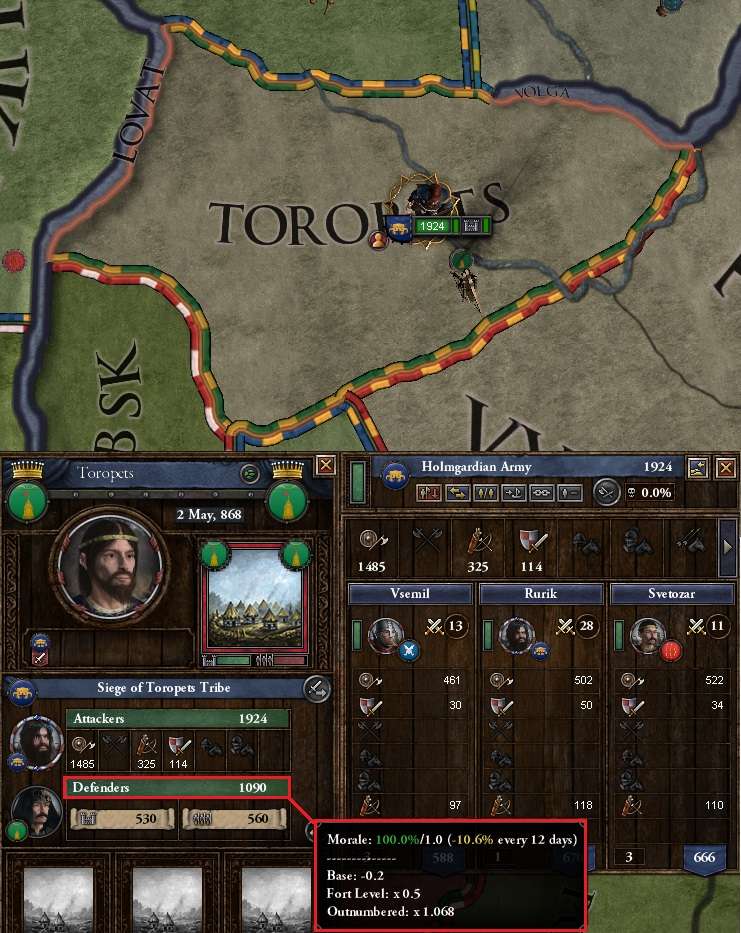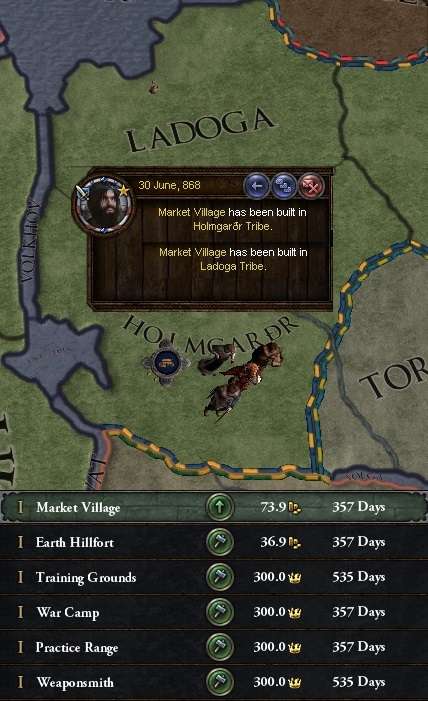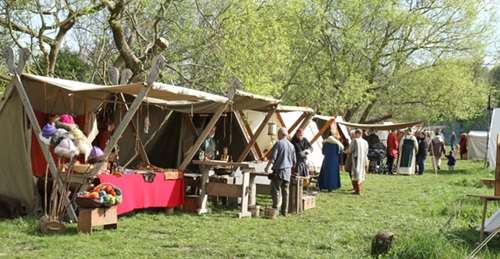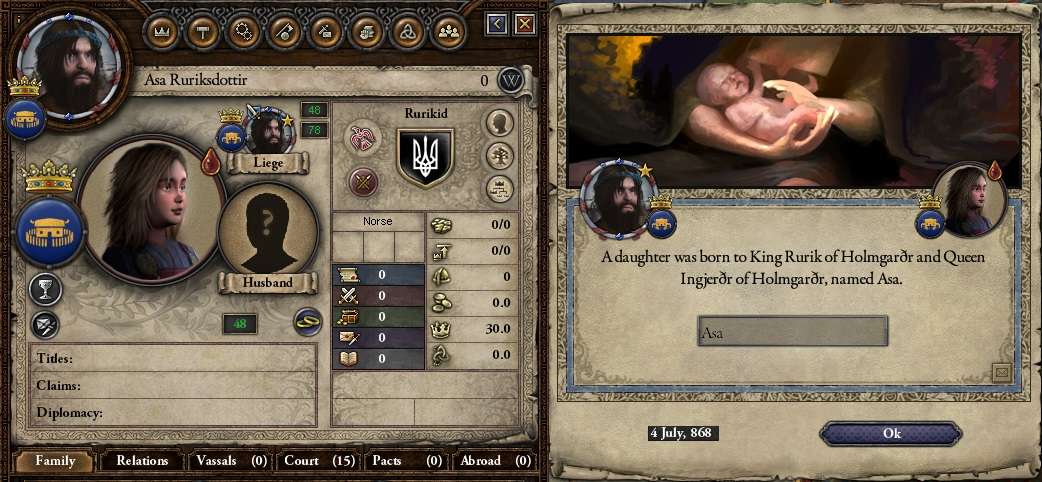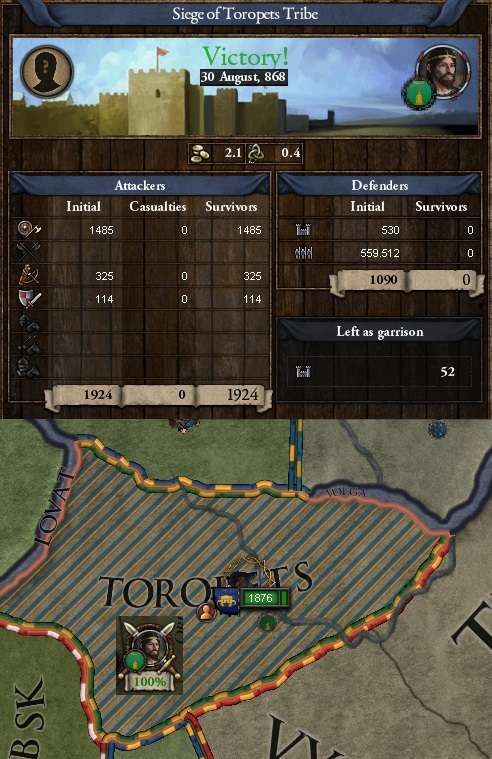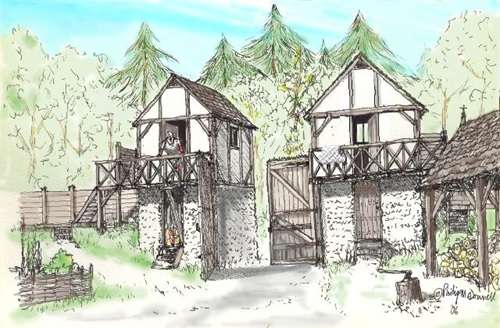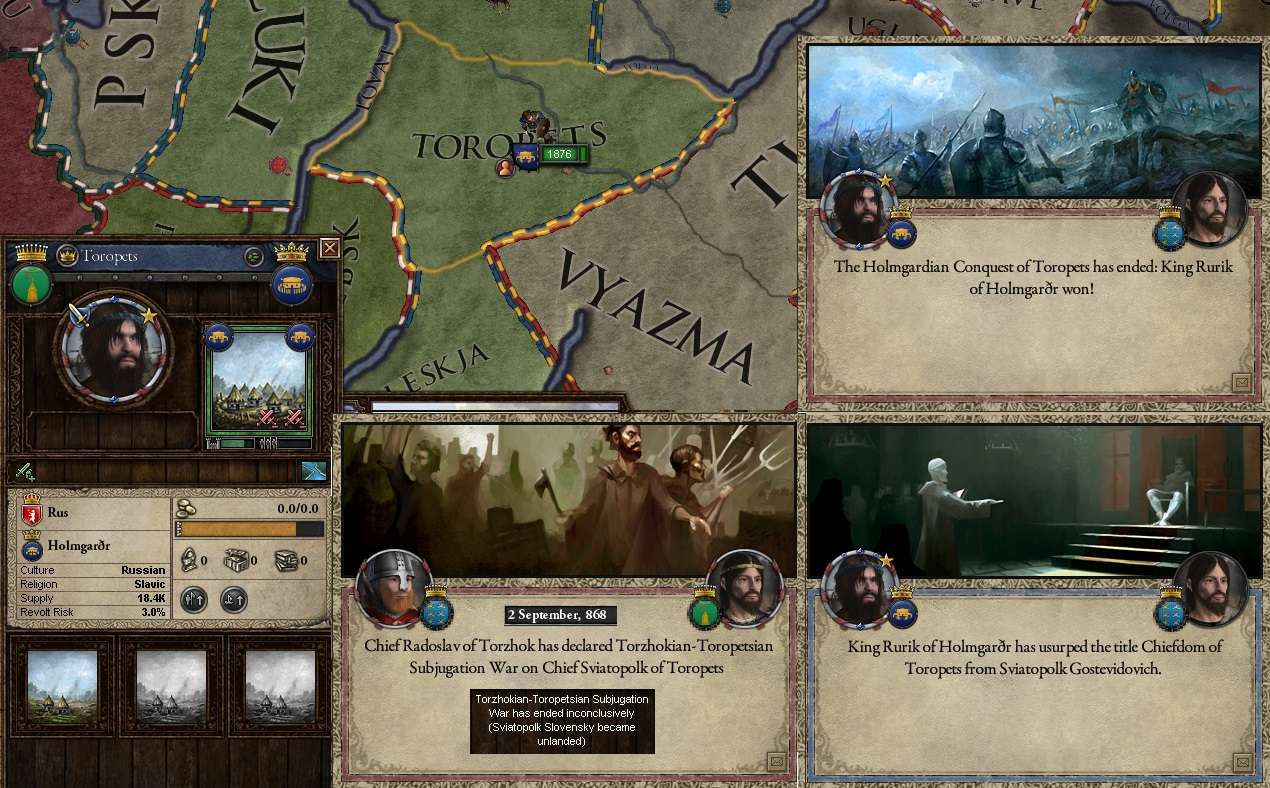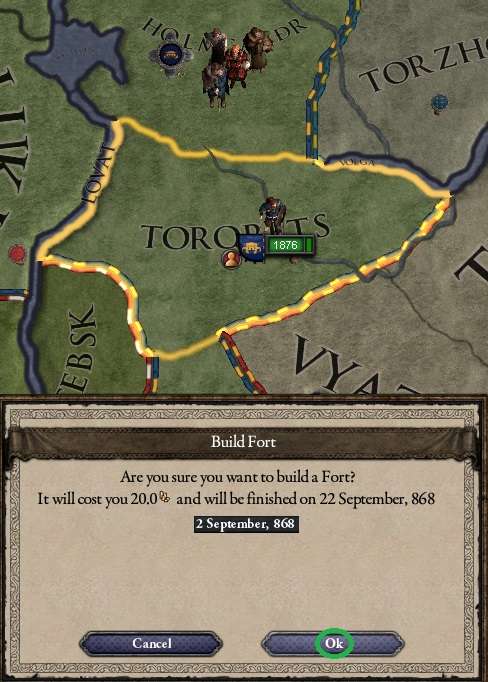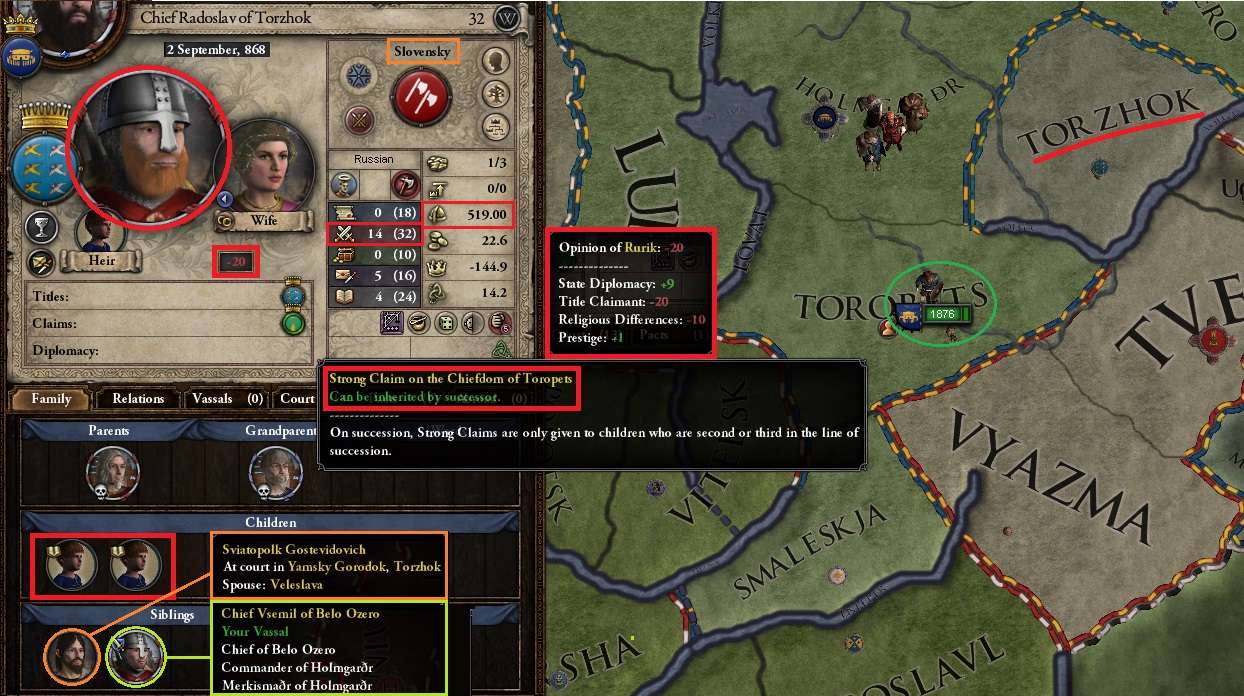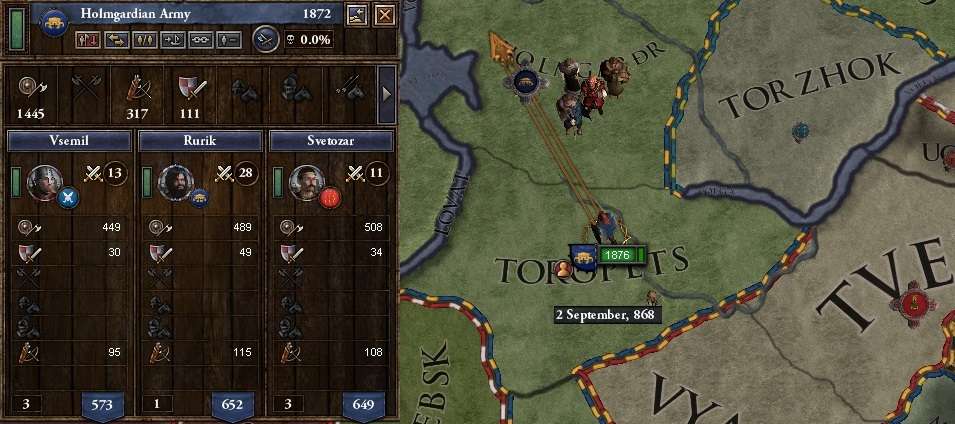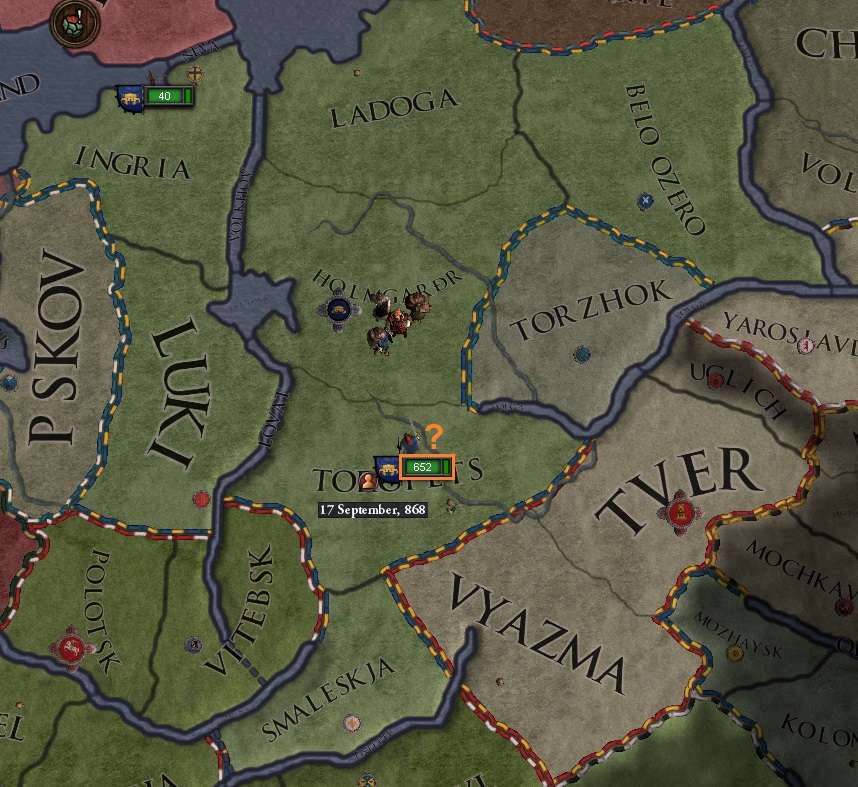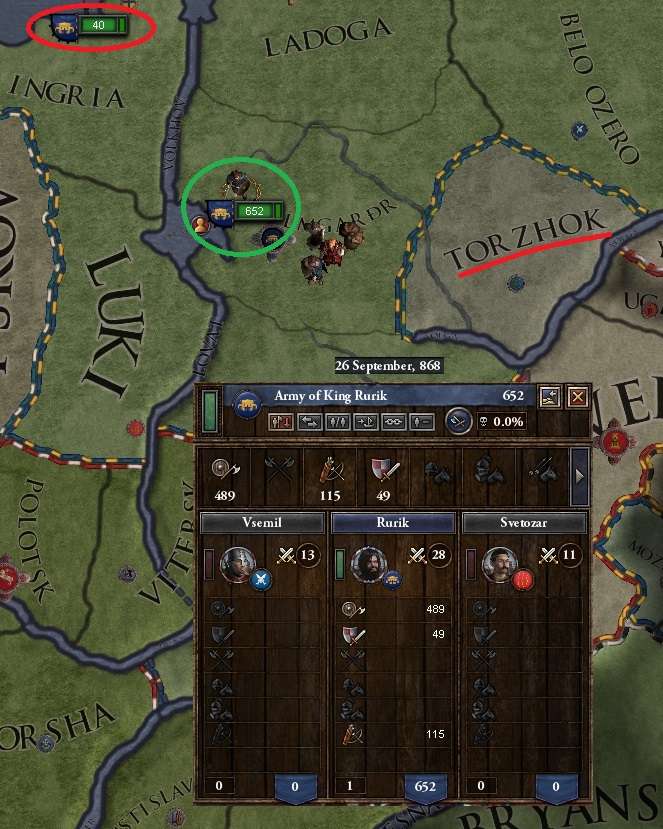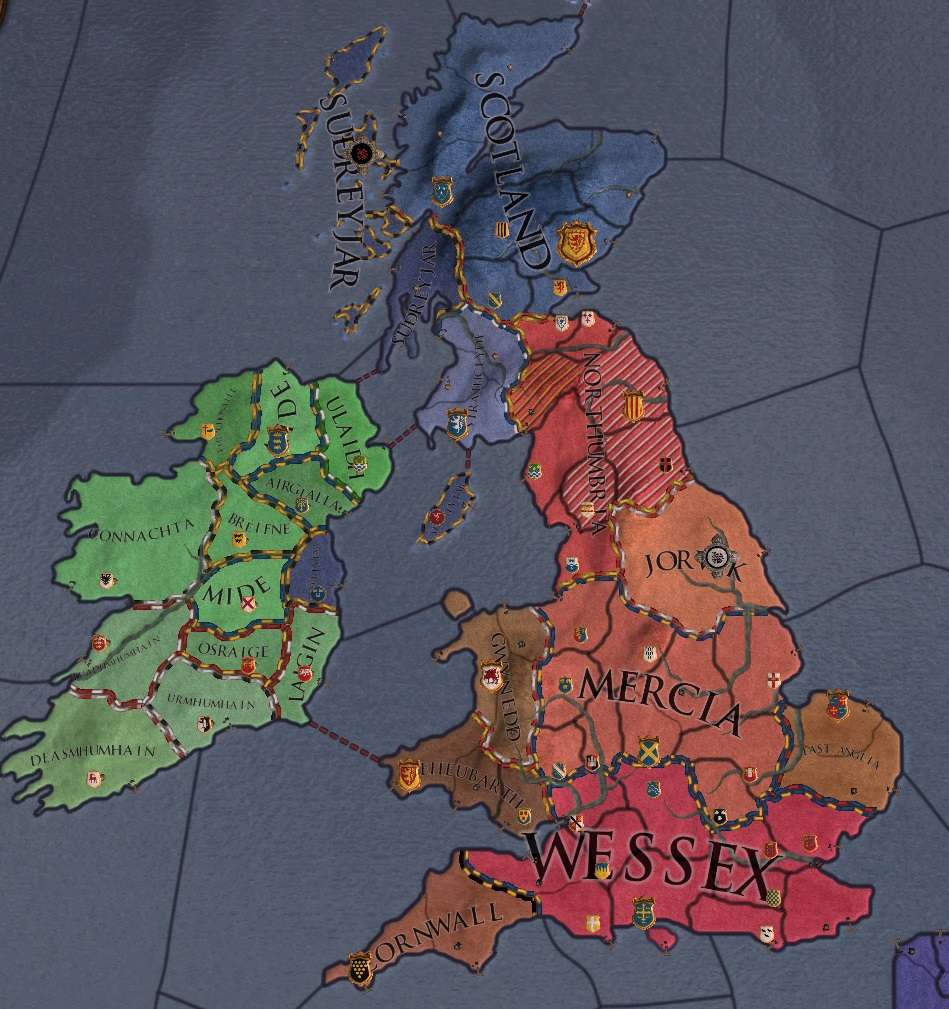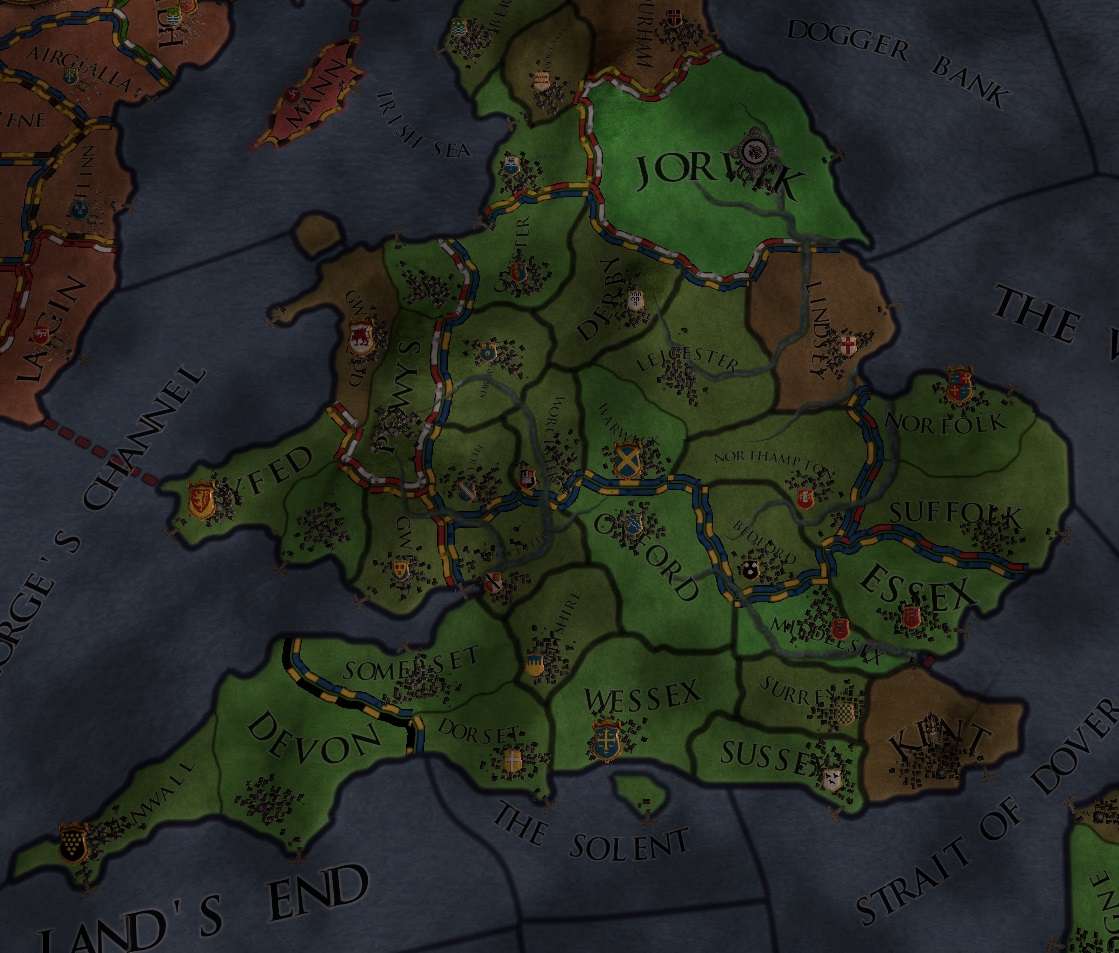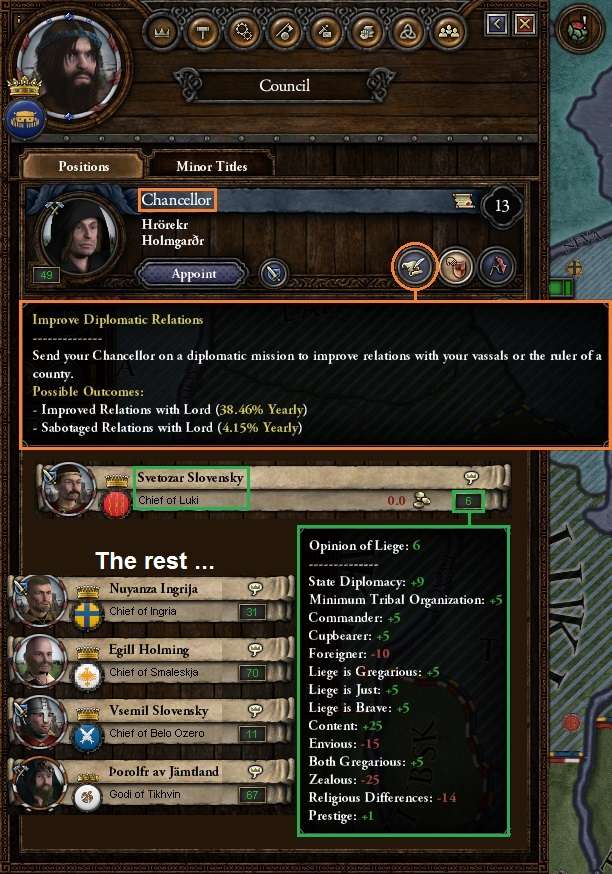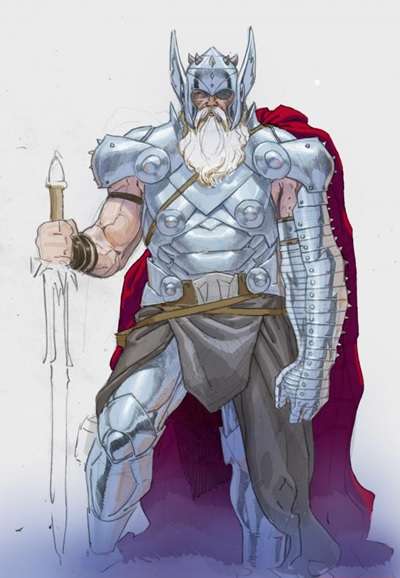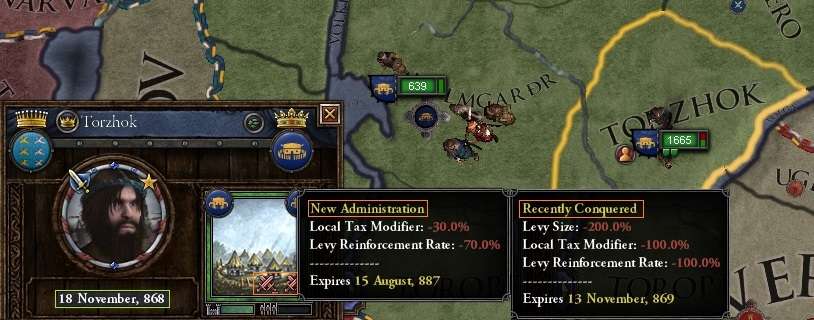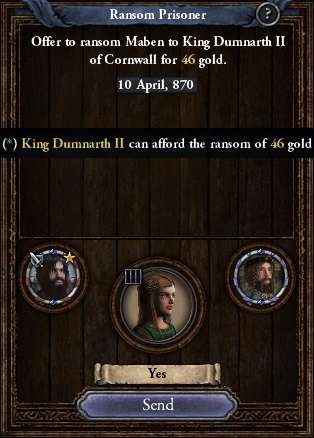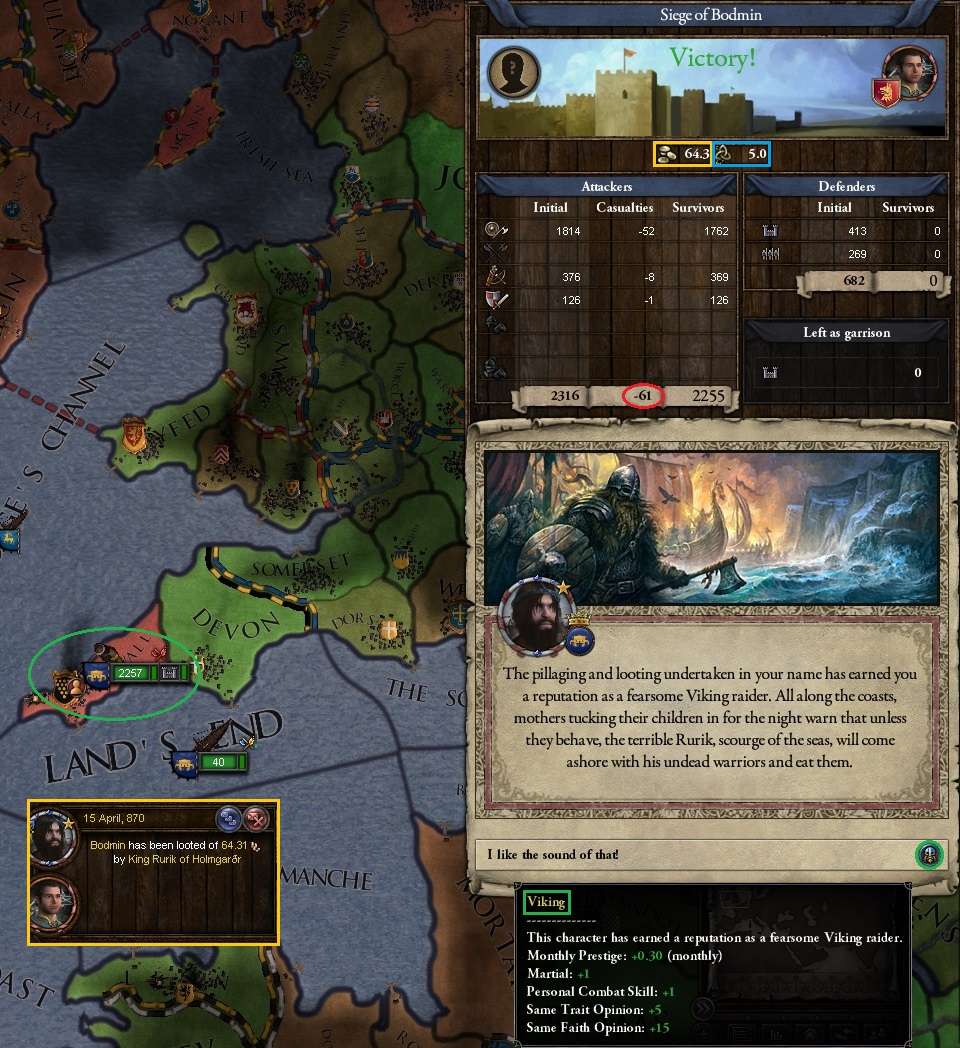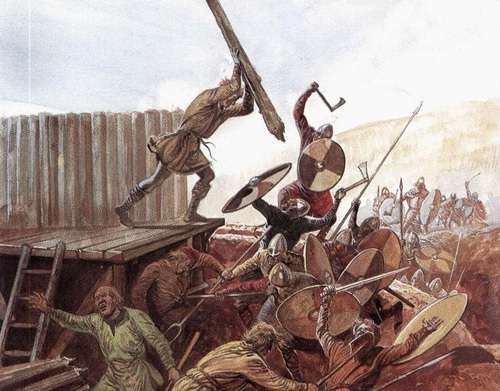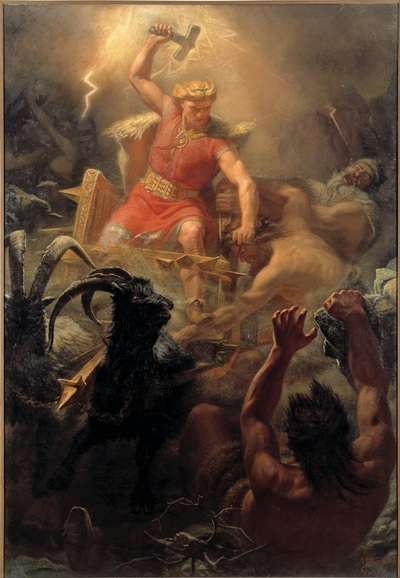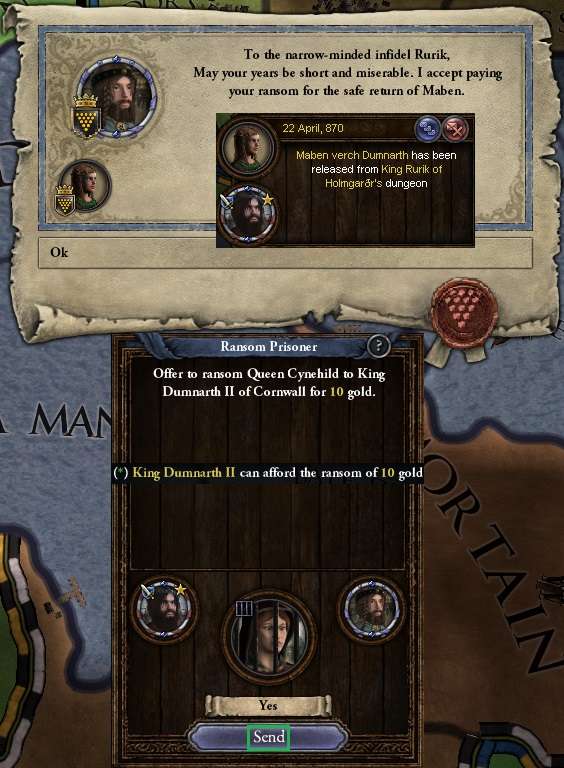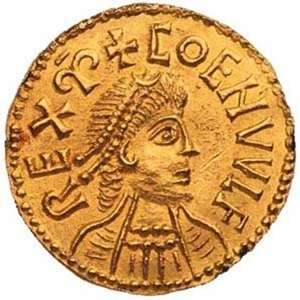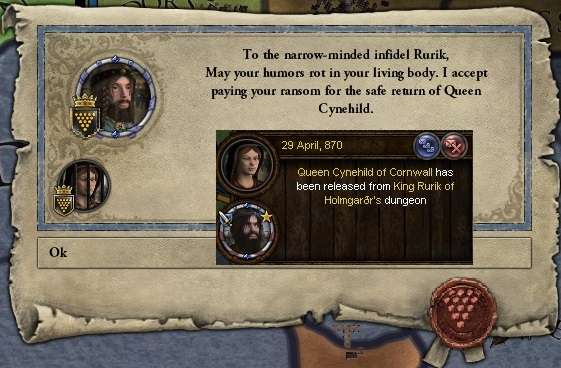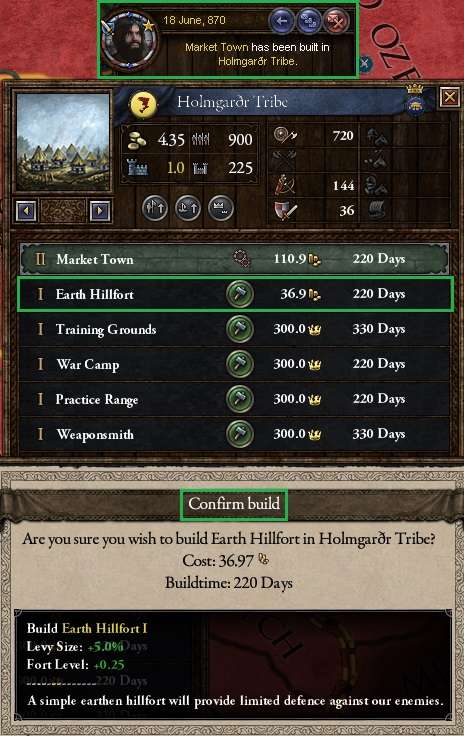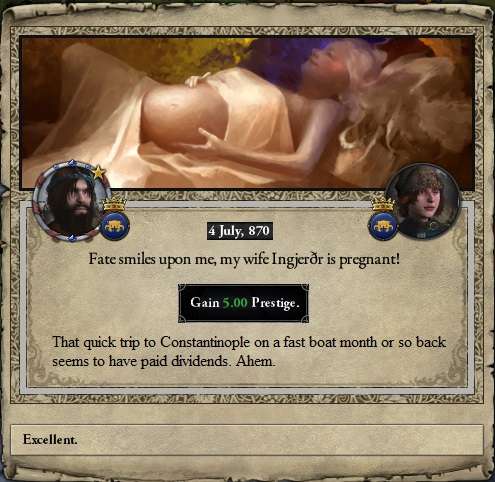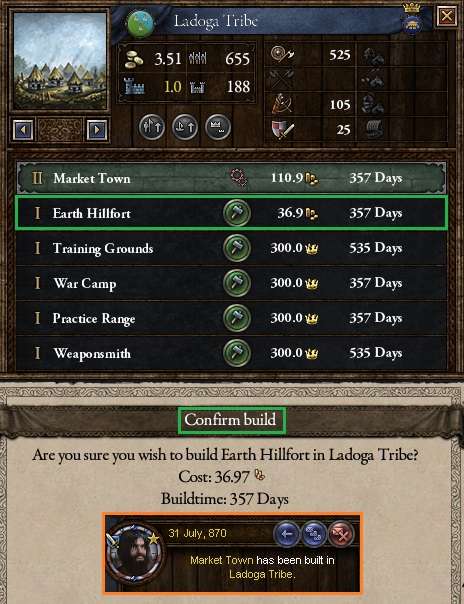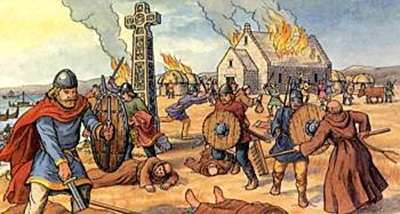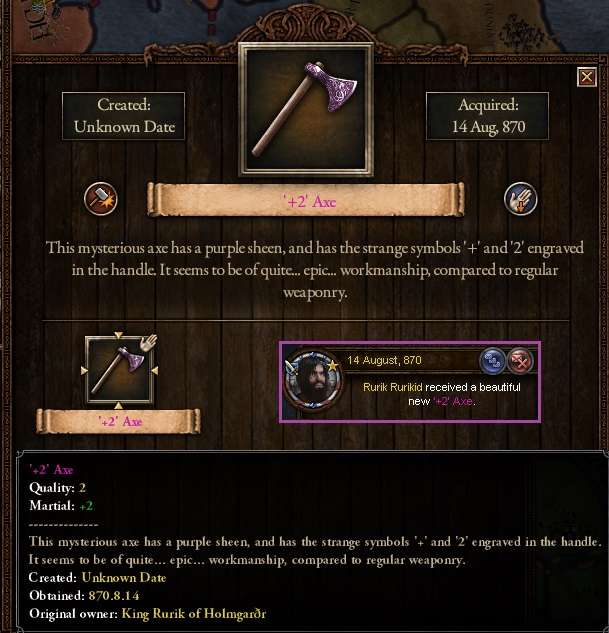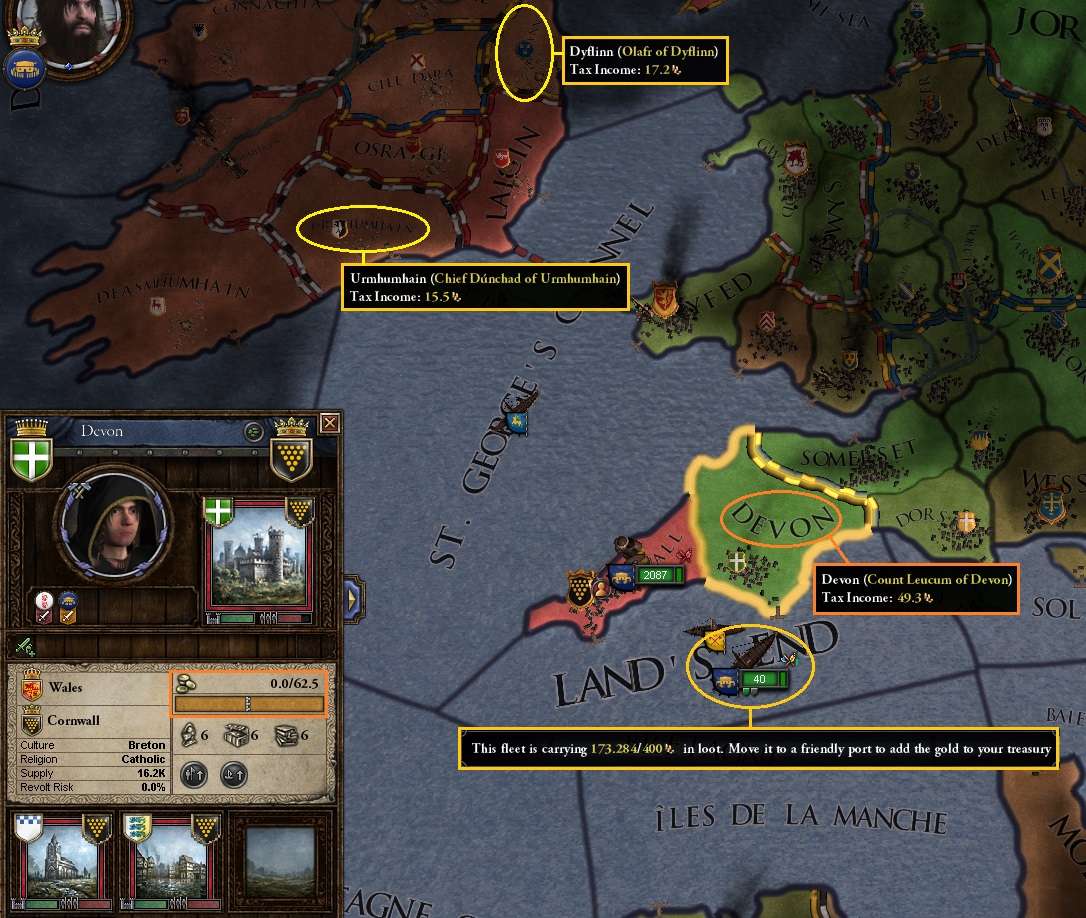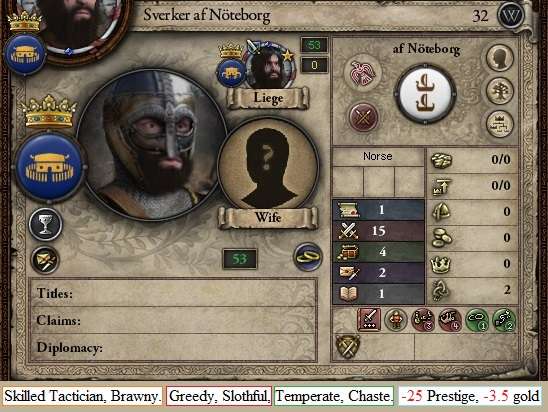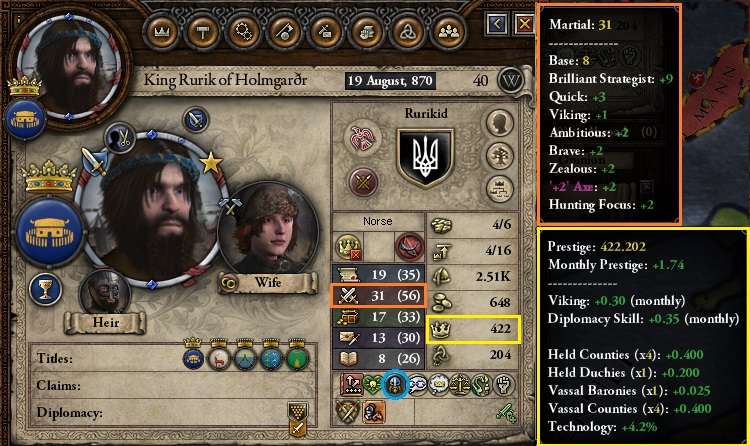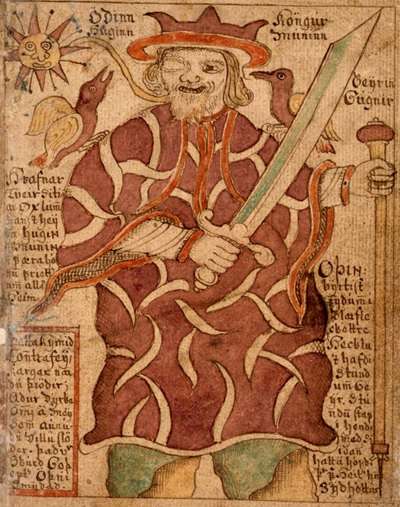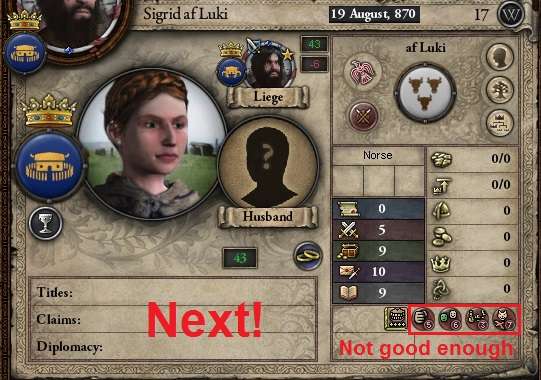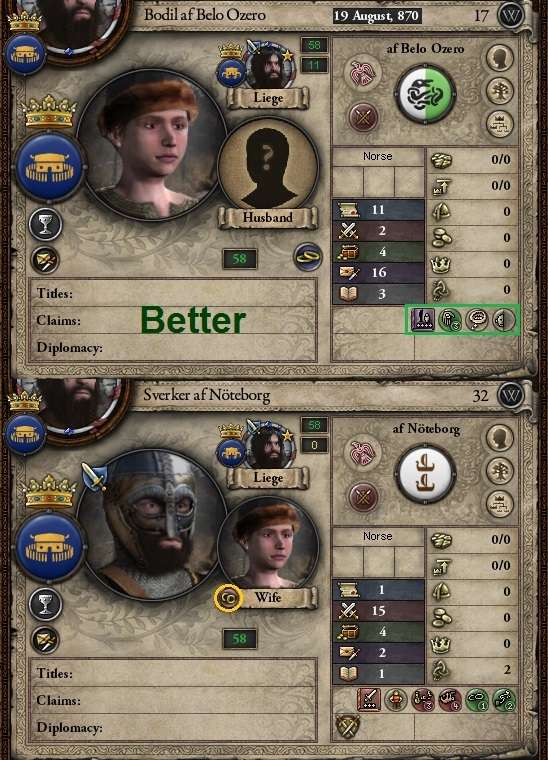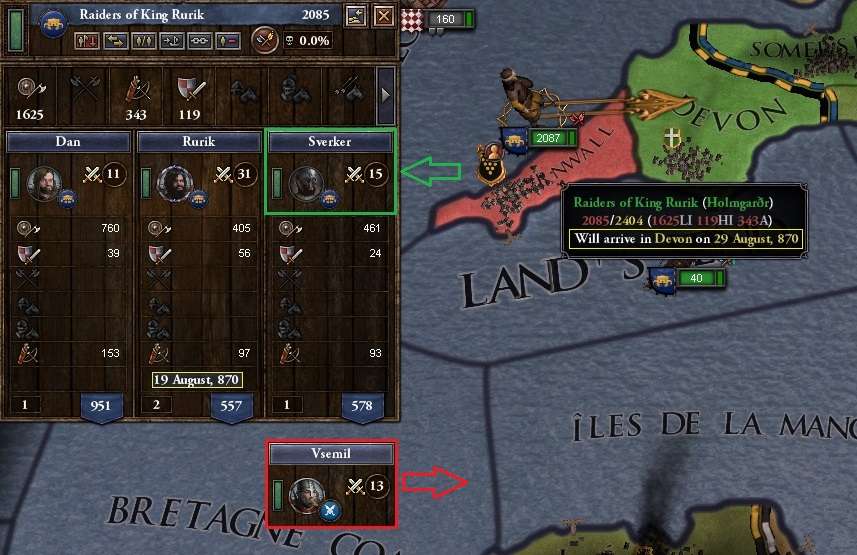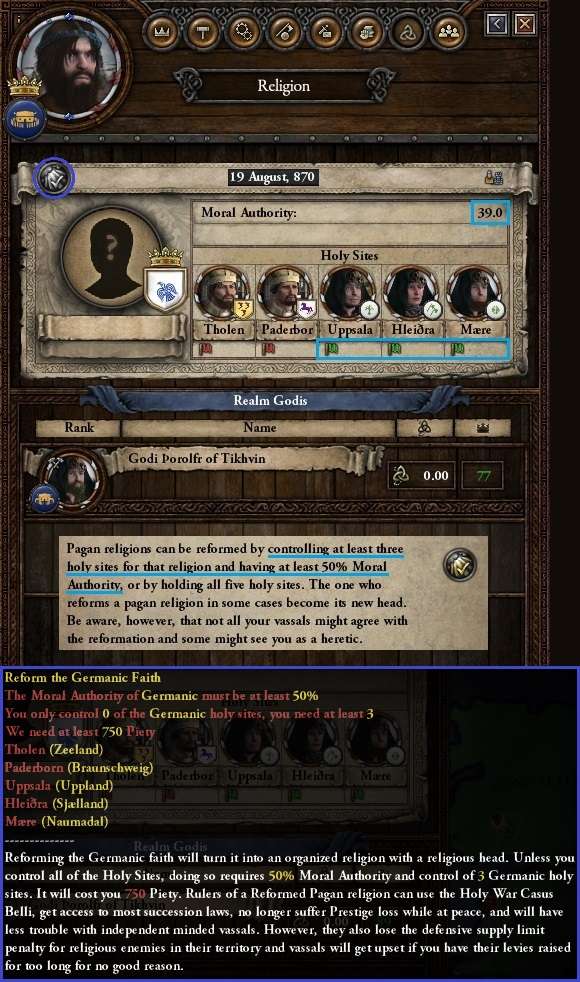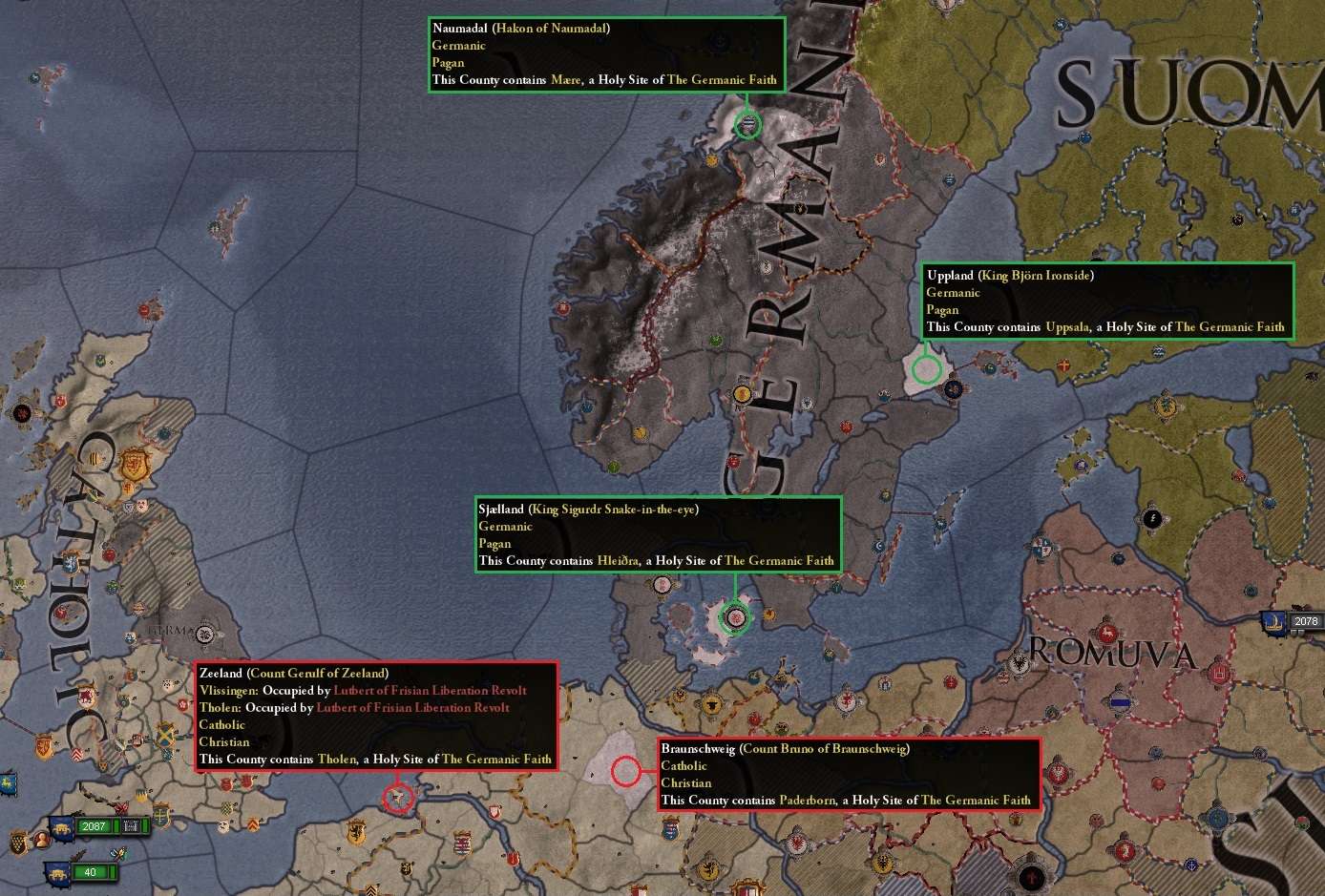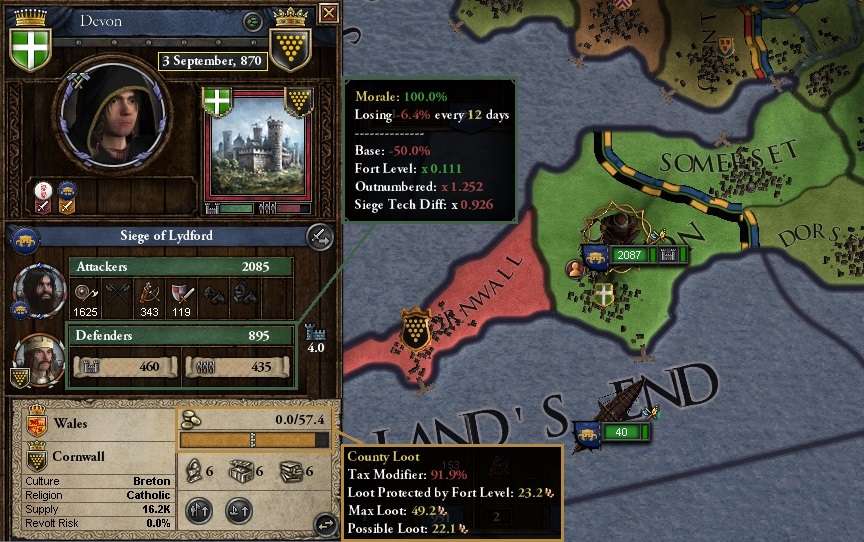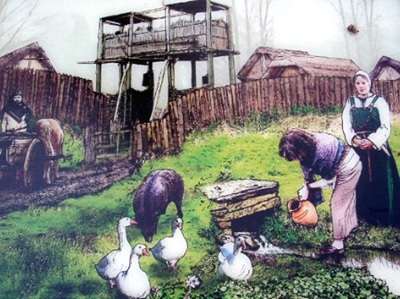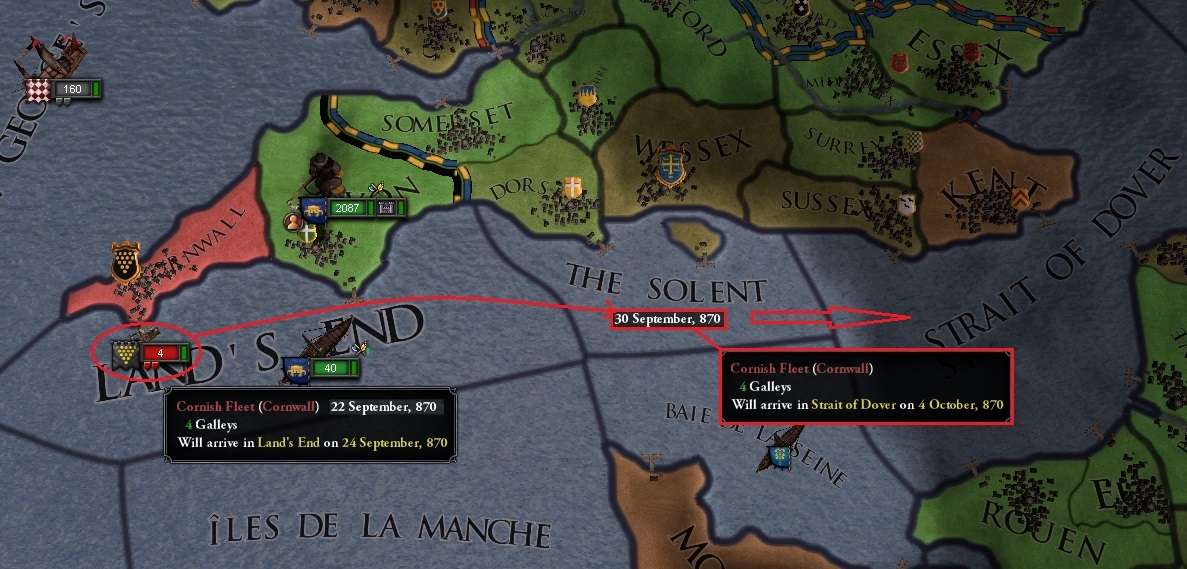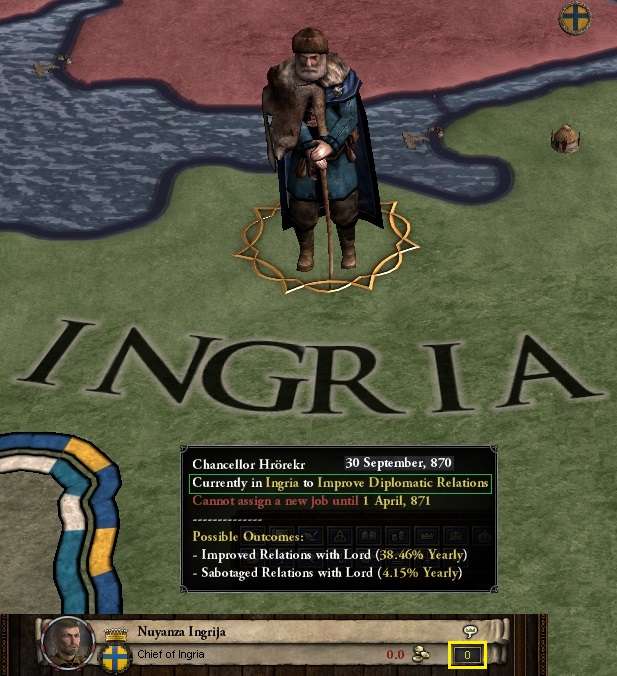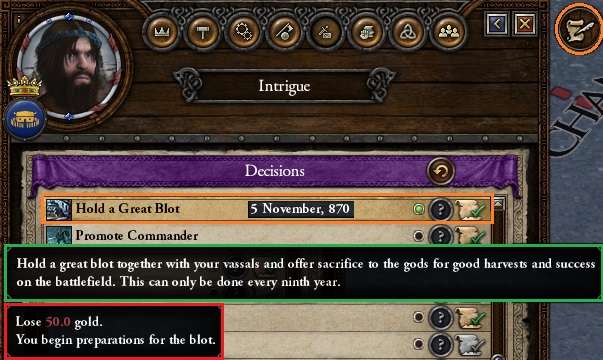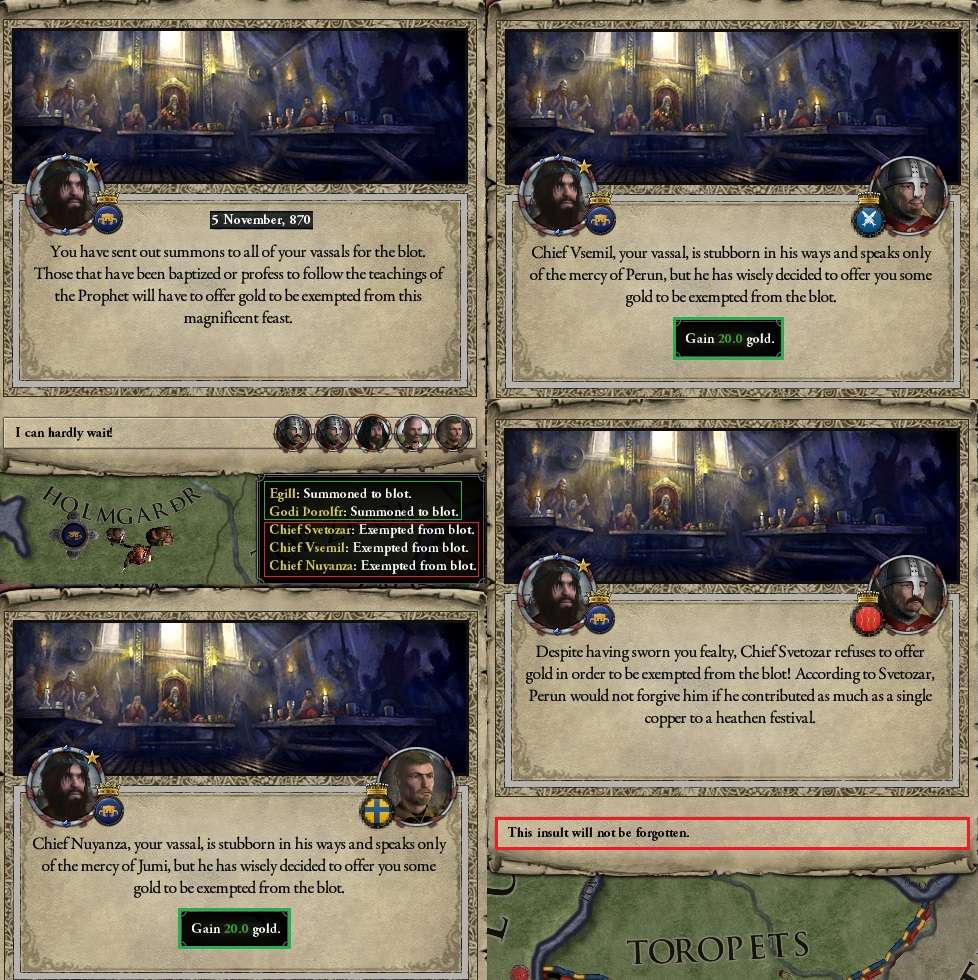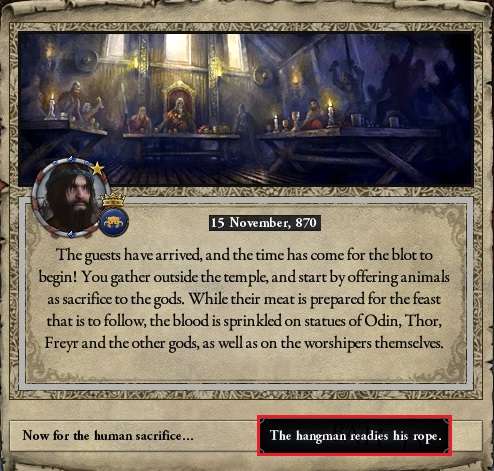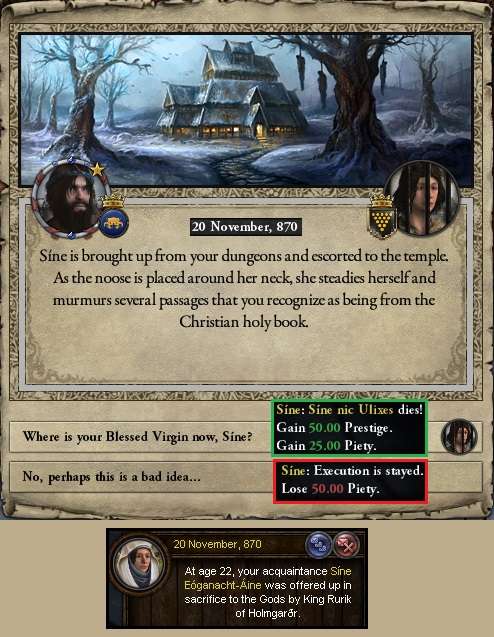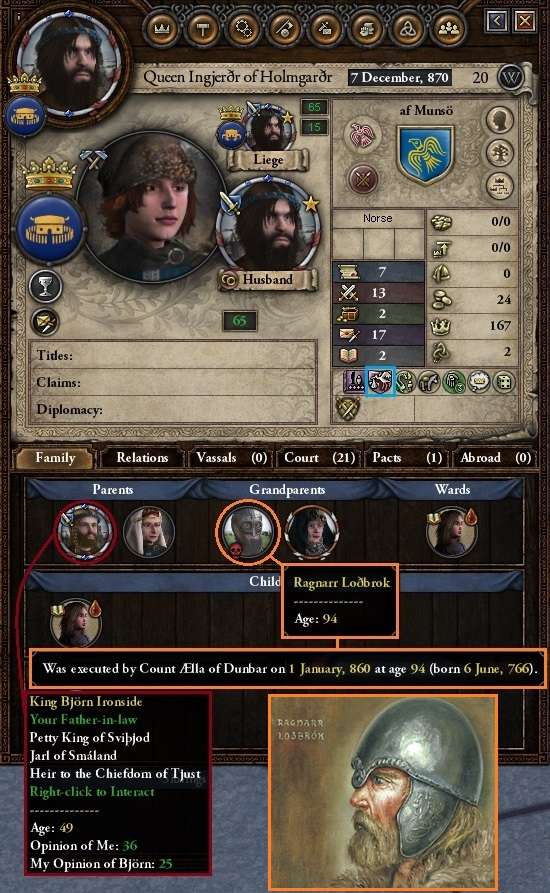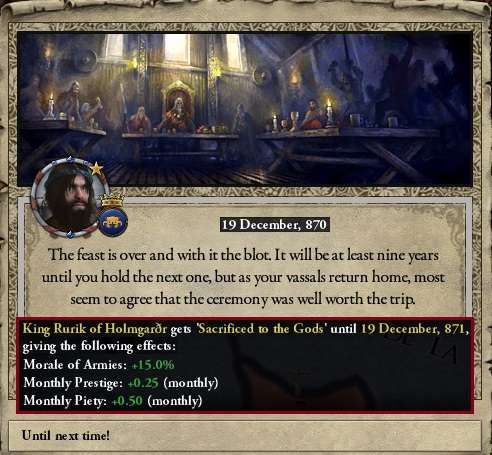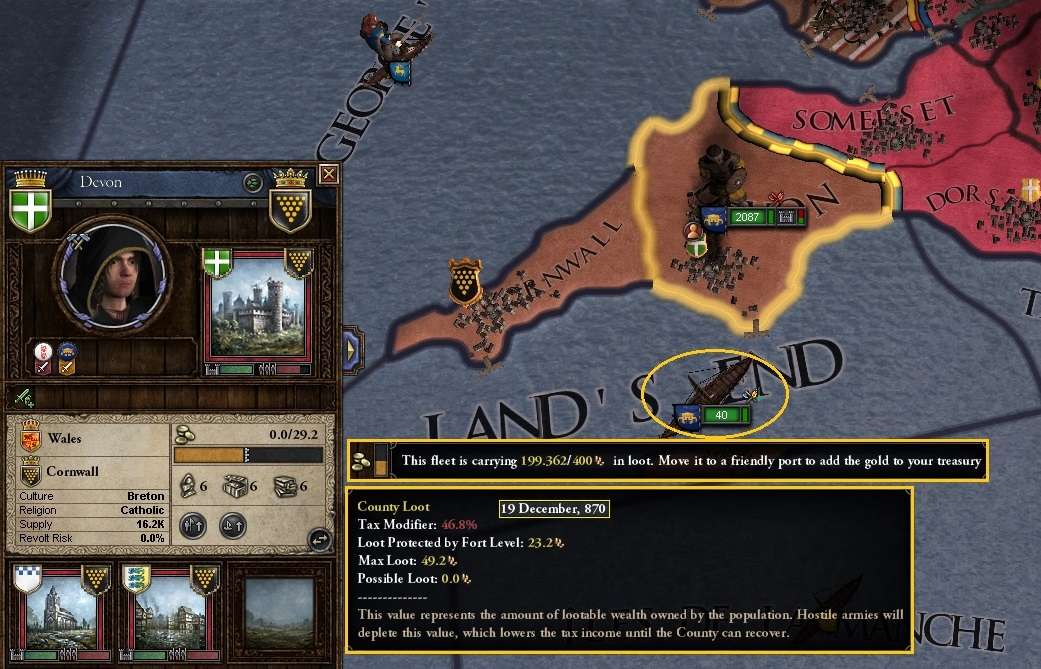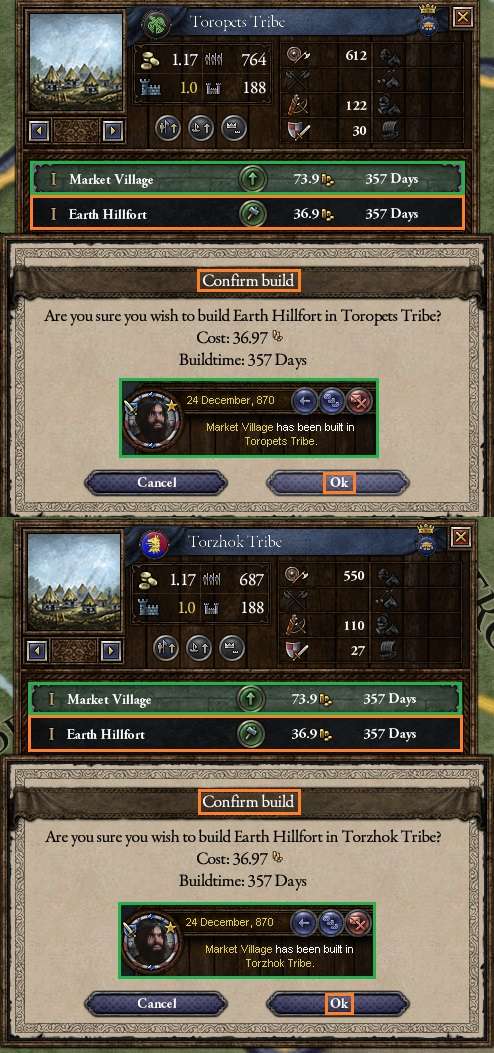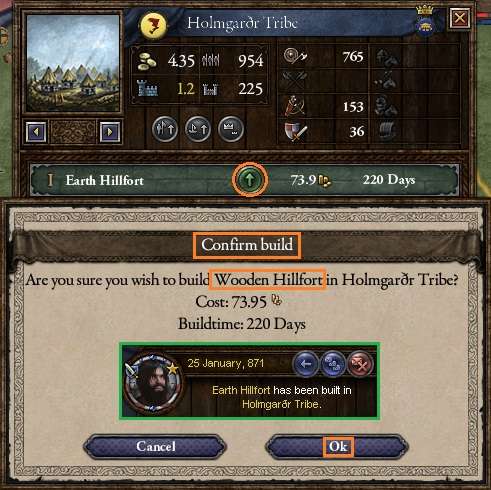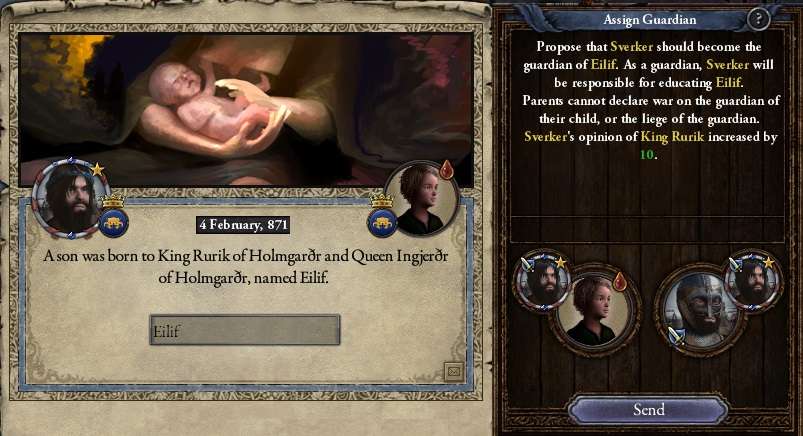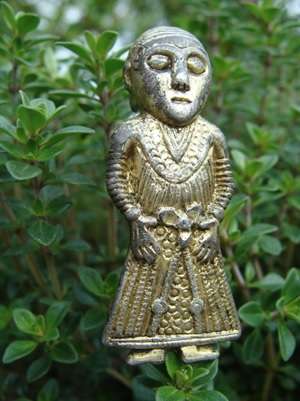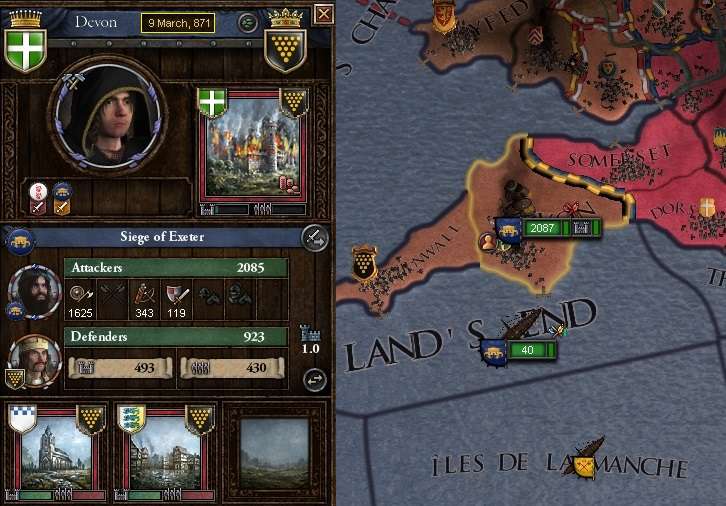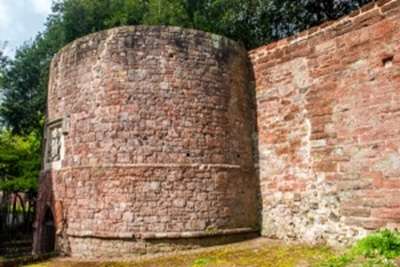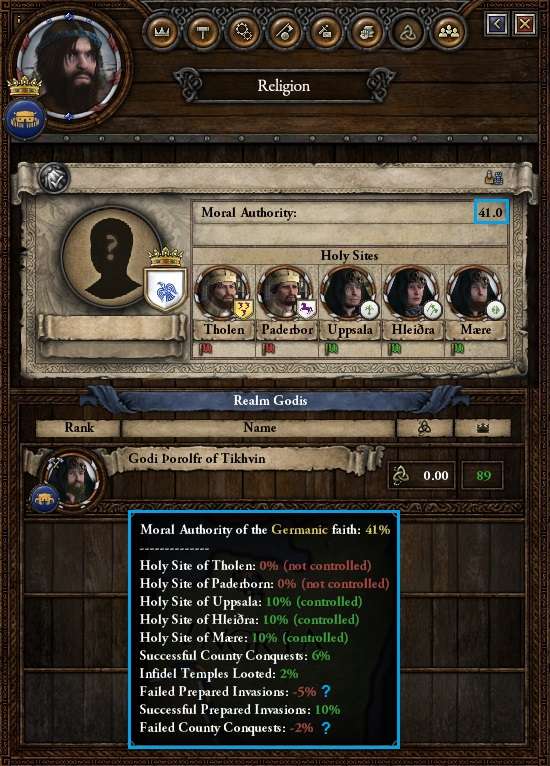Chapter 3: Odin’s Favour (1 January to 8 July 867)
“And young Prince Helgi must needs be prudent; giving freely while his father-king lives; so when older and fighting starts; he does have his companions steadfast with him; in admirable behaviour lies his path to power; and the respect of people everywhere.”
Gumarich der Schreiber, 867 AD [Ed. paraphrased, with apologies to the later writer of Beowulf]
Odin Allfather in the guise of the wandering pilgrim.
Legal Considerations
It is still the First Day of 867. Late that evening, King Rurik wrote a letter to Chancellor Hrörekr, who is also the King’s Lawspeaker (he was at that time attempting to fabricate a claim on the County of
Toropets). Researchers were lucky enough to find it in the scroll-trove of Holmgarđr. In it he set out the current laws of the realm and of obligations. The tables below set out the position at that time.
Rurik's request for advice touched a number of areas. In realm laws, his main option seemed to be to change from
Minimal to
Low Tribal Organisation, with the benefits and drawbacks identified in the figure above. As far as he could work out, vassal opinion would be adversely affected
[going from a +5 bonus to a -5 penalty], but it would allow him to revoke titles and also be able to enforce Low Centralisation laws
[though that also would require Legalism 1 cultural advance]. That in turn would allow him to increase his demesne holdings
[+1], but would reduce the number of vassals he could effectively control
[by 5: ie +10 to +5]. His current demesne size
[2/7] was yet small and easy to control, so he did not believe that was a problem that needed fixing
[ie. through an increase in Centralisation]. His current number of vassals
[4/16] would be easy to control for some time yet, again not needing any fixing
[and a decrease of 5 in the limit would not hurt currently].
With no real need for
Low Centralisation laws at present (or the ability to impose them), he told Hrörekr the only reason for changing to
Low Tribal Organisation now would be if he wished to revoke a title from one of his vassals. He may wish to in the future, but had no pressing need to do so now. And enforcing the law now could (by the negative effect on his vassal’s regard for him) actually hasten the need for its use, in a self-fulfilling prophecy of sorts! He sought his Lawspeaker’s advice as to whether he had correctly interpreted this legal aspect and whether he had any advice on this matter for his King.
[Q1: Any views on current Tribal Organisation or future Centralisation legal matters welcome, including any laws that might be useful later one should strive for. The first option could be to aim for Legalism 1 as the first Cultural advance, but only if it would be worth it. There are others there that look like they could be more immediately useful.]
King Rurik also sought counsel on the range of laws on various
Obligations. Without going into detail on the raft of possible options, he simply sought Hrörekr’s advice on whether any of them needed changing. Finally, in looking through the laws of the realm, he kept encountering the same notation, in the fine print at the bottom of each law:
“The council is not allowed to initiate voting for this type of law”. His last question to Hrörekr was to confirm whether this simply meant that only he, as King, could initiate a law change, or whether it meant something else (such as the option not being available at all, for some unfathomable reason). The King was not willing to initiate a change just to find out. He was not seeking to amend any laws immediately, but said he would make a decision in the summer and would be happy to receive a legal opinion in July that year.
[Q2: Should Vassal Obligations just be left at the default settings in force at game’s start, or are any of these worth changing for an early tribal society? I’m presuming the comment about councils not being able to initiate a law change means that sometimes they can, and separate to or even in defiance of their ruler. Is that right?]
More Military Matters
If the cap doesn't fit ...?
Here follows an excerpt from Gumarich’s working diary, which he kept to aid his writing of the
Chronicle of the Rurikids, a task passed down by father to son or selected apprentice in the tradition of Holmgarđr scribes.
Good King Rurik hath his head full pained in thinking of Laws and Obligations. His pain was increased twice-fold when the young Prince Marshal Helgi did present, seeking advice on the raising of Personal Retinues.
“My King and Father”, the young Prince did ask his Liege, “I have spoken to Old Yurich, seeking to raise a Retinue for our coming campaigns and raiding. Yet his explanations have left me confused. It seems according to his reckoning that our retinue is limited to a cap of 63. Using the Shock retinue as an example, he explained to me that while we could afford the cost of 98g and the projected monthly maintenance of 17 silver [eg 0.17g], such a retinue would require a capacity of 700, which was well beyond our range. Looking through the list of other options, the least was a Skirmish retinue, which requires a cap of 550. These terms and numbers did blur my vision by their arcane nature.”
“So Father,” the young Prince Helgi continued. “Does this mean we mayn’t raise any retinue until these so-called caps have been attained? If this is so, Old Yurich told me that must be done by increasing the number of our holdings and by improving our Military Organisation through study. Should I pursue that ahead of improvements to the efficiency of our forces, siege equipment or shipbuilding?” At this, the furrow on King Rurik’s brow deepened and his eyes became a-crossed. He looked to his mead cup and drained it to the bottom.
“Good questions, my son,” the King did answer. “But my head aches from the problems of state. The day has been a long one. We will not be able to expand our holdings or improve our military learning for many months yet, or mayhap even longer. Let us consider these matters again in the summer. Seek advice from your commanders on these Retinues, which we have not yet employed in this realm and are beyond my ken. Perhaps you can find an adviser who hath heard of wisdom from other lands, to know their nature and value. For now, read well Wiki the Red’s tome on raiding. Come to me when you believe will be ready for our first raid and have worked out how to summon our vassals to support such an adventure. I have heard tell of a mysterious and arcane device - the ‘Raiding Toggle’ - which you as Marshal have custody. Perhaps it is a horn into which you must blow, or some such.”
At that Prince Helgi sought his Liege’s leave to retire, to read of raiding and search for ‘toggles’. I heard him mutter to himself that to him, a ‘toggle’ sounded more like a small faerie creature that lived under bridges, but perhaps Old Yurich would know where it was. A brand new 17 year old Marshal could hardly be expected to know where every obscure device and instrument was on the first day of his appointment!
Having granted his son leave to depart, the King sought the refuge of his own bedchamber. And the young Queen Ingjerđr, who – along with another jar of mead - would surely help to warm a very cold winter’s day!
[Q3: any more advice – confirmatory or additional – on retinues welcome. Have I interpreted the basics correctly? Are they worth getting, in due course? Should it be an early priority, or set aside for a while to allow the basics to be looked after?]
Diligent young Marshal that he was – and still waiting for his hoped-for bride to accept the invitation and arrive from far
Man – Helgi quickly reviewed the current list of Commanders at the realm’s disposal.
Helgi’s written review of the realm's commanders was found among the trove of scrolls, so is available for us today. Other than himself
[with a martial rating of 19] and the King
[26], there are four commanders currently appointed. At the top of the list (naturally) is the ever-present Chief Svetozar of Luki! The other commanders are other Chiefs and the Godi Porolfr. None of them may be new Caesars, but a search of the list of other contenders showed only Steward Alfgeir had more military ability than those already serving, and not by much. Better perhaps not to create animosity by sacking a vassal to be replaced by someone who would only be a marginal improvement.
The next day, having awakened refreshed, Helgi went in search of the mysterious "Raiding Toggle" – and found it, hiding there in plain sight on his Marshal’s belt of office. It was a medallion when, affixed to a letter through the impression on a wax seal, would apparently legally summon the levies of their proud and otherwise recalcitrant vassals for the purpose of raiding!
But wait! His current assignment, given yesterday, to train troops in
Holmgarđr county, would not finish until early July. Curses! And then, apparently it was not
certain a raid would be mounted immediately. Well, at least he would have some time, as his father had foreseen, to study up on raiding, retinues and combat!
Nation Building
Gumarich also recorded Council considerations on building priorities for the young realm. The Kingdom’s Seer, Porolfr av Jämtland and Godi of Tikhvin temple (which lay in the home county of
Holmgarđr), naturally wanted his holding improved. There was a range of choices available and he pointed out the treasury could afford it. Gumarich wrote the Godi “is an admirable figure; full of virtue; he was renowned throughout the kingdom as just; patient; humble and temperate. The Seer was recognised universally as a master of theology and the greatest supporter of the King among the vassals. Under tribal law, he was the only vassal who paid taxes to the realm and stood ready to provide liege levies whenever asked.”
But Gumarich also noted that others among the Council and diverse advisers and writers had imbued the King with great trepidation regarding the investment of resources in building the holdings of
any vassal. If the others would not get such favouritism, then why should the Godi? King Rurik took this counsel reluctantly and denied Porolfr’s request; but did not do so finally but, giving a promise to reconsider the improvement of the Temple of Tikhvin at another point. Perhaps even in the coming summer.
[Q4: despite the almost universal advice about the dangers of enriching or empowering one’s vassals, does anyone believe in these circumstances some improvement to the Temple, even though held by a vassal, might be worth it? Some basic improvements for increasing tax and levy growth? Militia quarters or barracks to boost military strength? Or even starting a church town?]
The King did however have an easier decision to make: he immediately started construction on forts for his two demesne counties,
Holmgarđr and
Ladoga. They would both be ready quickly (in three weeks, on 21 January) and cost only 20g each. A temple for
Ladoga would cost a very large amount: 489g 50s
[Ed. I’m going to use this designation of gold/silver to give a small amount of period flavour. I doubt too many decimal places were being used in early medieval Russia at this time]. Steward Alfgeir suggested its construction could perhaps be funded through some raiding, as building it now would make a significant dent in the coffers and not leave much for the emergency raising of mercenaries, for instance. Like all good treasurers, he did not like deficit budgeting, even if it was not so termed by tribal stewards during the ninth century!
[Q5: If a new temple is built on the ruler’s demesne, who is in charge of it? Does a Godi have to be appointed, as a vassal, or can it just be run direct by the King? It seems like a very large investment, but presumably can provide long term rewards. Is it a short or long-term ambition, at this early stage?]
Culture and Religion
Just when King Rurik thought he may be able to escape the confines of his council chamber, the discussion of holy places had got the Seer talking about the importance of Religion and Culture to the Kingdom and its plans for future expansion. From the notes of the meeting made by Gumarich, two maps of the realm as it stood in 867 with regard to its religion and culture have been made.
All the kingdom was solidly Pagan, but of different variations. Historians have indicated a base colour for the prevailing county religion, while stripes indicate the ruler of the realm has a different religion, or at least ‘denomination' thereof. Hence grey (Germanic Pagan) stripes for the counties of the Kingdom of Holmgarđr: over Finnish Pagan green or Slavic Pagan beige.
While the King is a ‘Germanic Pagan’ (which seemed to be the main religion of Denmark and Western Scandinavia – but not 'Germany' itself), the rest of the Kingdom (while Pagan) is made up of two different brands: of
Suomenusko (or Finnish) Pagan and
Slavic Pagan. To Rurik’s
[Ed. that is, my] unschooled eye, the only practical difference between the two 'denominations' seemed to be in the name they gave the Gods. He wanted to know more about what the difference between these brands of the same general faith system were. And more pertinently, whether he need to do anything about it.
[Q6: Any 'enlightenment' (to borrow a word roughly in context) as to the significance of both religion and in this case its ethnic-based denominations would be useful. I’ve seen a few AARs pay it quite a bit of attention, but without necessarily explaining the importance or desirability of having it homogenous throughout a realm, or in harmony the with the religion of its ruler. In other words, does Rurik have a problem and should be be taking any action about the religious diversity in his realm?]
The cultural make-up of the realm seemed to
roughly match the religious characteristics, but was a little more diverse again. The majority culture is Russian/East Slavic. But
Belo Ozero was Finnish/Finno-Ugric, while
Ingria was Estonian/Finnish-Ugric. And, similarly to the religious overview, for the realm of Holmgarđr this is overlaid on this map (light blue/grey stripes in this case) with the Germanic culture of its ruler, Rurik.
While this was eventually explicable to the King by Seer Porolfr, Rurik did not really understand its significance, or whether he should aim over time to change either his own or the Kingdom’s cultural make-up. He wondered whether, given his long-term ambition of uniting a Great Kingdom of Rus, he should look to shape all its provinces into the Russian/Eastern Slavic mold. Or should he be showing them the glorious ways of his own Germanic heritage? And if so, how might he go about such shaping? He would defer these question to a later day, but if action
was warranted and a long journey required, best it was started sooner rather than later.
[Q7: again, similar to religion, any basic thoughts or advice on culture most welcome.]
Wealth
Steward Alfgeir, not to be outdone, then made observations about the relative wealth of the lands of the known world. His central message was that the lands around Holmgarđr were largely poor and backward. The home county’s tax revenue, while low, was actually higher than most other provinces in the near region. In essence, the lands of the former Roman Empire were largely very rich, as were those of the Arabic world and Persia. Far off India was patchy; most of the rest were in varying degrees of destitution. Constantinople seemed to dwarf even the next richest band of important cities, such as Alexandria, Venice, Medina, Mecca, Rome, Baghdad and other cities of similar wealth. Modern historians have produced a map showing the estimated distribution of wealth across the then ‘known world’ (as known to the Holmgarđian court of 867, anyway).
Estimated wealth in 867 AD: green is good, red is bad.
[Q8: any major take-outs on the wider distribution of wealth for a petty kingdom in Holmgarđr’s starting position would be of interest.]
Escape and Reward
By this time, Rurik’s head was aching with all the information his counsellors and advisers had provided. While many questions had been asked, many new ones had been raised. “By Odin’s Beard,” Gumarich recorded him as shouting across the Council Room. “Stop all these words! It may be colder than a Viking’s Heart outside, but I need the fresh air. I will go hunting. Helgi, send me a small group of trusty men and I will be off tomorrow.” The King strode out of the room, looking forward to the fresh – indeed,
extremely fresh – air.
Gumarich’s next entry related a tale of wonder that would make a great impression on the King – a moral test which would force him to make a profound personal choice. On 6 January, the King had a mysterious encounter that presented him with three courses of action to choose from:
The King knew his men were watching and the tribe would hear of his reaction to this chance encounter – or was it
just chance? Rurik thought it more like a test. And when he thought of the consequences, he knew as a Gods-fearing King in pursuit of the great prestige that would make him Exalted among men, he must strengthen his faith; put aside the simple manly pleasures of the
hunt; and eschew the petty plotting and mean-spiritedness of the
cynic. And his choice was justly rewarded – the well contained 100g, the Allfather’s reward for his new-found
zealous faith. And as the story spread, so too did the King’s prestige among the common folk. He returned from the hunt “a happier, richer and more zealous chief.”
A Royal Marriage
The King was well pleased with Helgi’s marriage to a good Norse lass on 9 January 867. Jorunn seems very well disposed towards her new Liege, which is definitely a good thing! Helgi’s immediate ambition was to have a son: a wise choice for the heir to the realm. Only 10g to mount the wedding, with more prestige to be had for an image-driven King!
Fortifying the Heartland
By 21 January, the new forts in the demesne counties of
Holmgarđr and
Ladoga were complete. A couple of additional improvements are available. A decision on which to proceed with will be deferred until more advice can be sought. The King must decide whether to improve his defences or build market villages to boost income (which is low, as there are no known trade routes in any realm province). A trade post (as noted in a previous chapter) cannot be built, given that lack of trade routes and the basic tribal form of Holmgarđr's government. Perhaps a hillfort for the border province of
Ladoga and a market village for the home county?
To Raid, or Not to Raid? That is the Question!
After the great surveys and reviews, a fateful meeting with Odin himself and a royal wedding all in the first few days of January, the following months passed uneventfully in the petty kingdom of Holmgarđr. A severe winter turned to balmy spring and then full summer. Helgi’s studies on raiding progressed and, as the months passed, Gumarich observed that “the Prince Marshal did often gaze at the Great Seal of Raiding; he did often hold it; his young mind’s eye did longingly coveted the glory and treasure of a raid; and his hand did alternately grip the Seal – fingers itching to affix it to letters of summons to the vassals - or the hilt of his sword for the adventure ahead.”
At last, it was early July. His first task done, he was ready to summon the tribal levies for a raid! But where should they strike? And by land or by sea? Far afield or close to home? For rich pickings (though such are distant from this poor realm) or to sap the strength of nearby potential conquest targets? This would be considered in a council of war.
[Ed. And so the third chapter of the Rurikid Blood and Battle Saga ends. There ended up being more preparatory work (and questions) than I had anticipated, as more arcane corners of CK2 became apparent from examining the game and reading a few more AARs. With these establishing chapters now out of the way, my intention if for future updates to be far shorter and event- or decision-based.]
The Thing (or ‘þing’) is a Thing!
A Germanic thing, drawn after the depiction in a relief of the Column of Marcus Aurelius (193 CE).
A
‘thing’ was the governing assembly of a northern Germanic society, made up of the free people of the community presided over by lawspeakers. The word appears in Old Norse, Old English, and modern Icelandic as þing (where þ is pronounced like unvoiced "th"). Today the term lives on in the English term hustings, in the official names of national legislatures and political and judicial institutions of Nordic countries and, in the Manx form tyn, as a term for the three legislative bodies on the Isle of Man
[Ed. cited from Wikipedia].
Gumarich notes the concept, old in Germanic and Norse society, was revived at Rurik’s court by the arrival of Helgi’s new wife Jorunn, who told of its use on her native Isle of Man. Rurik has decided to employ regular meetings of the Thing to seek the advice of the wise from within and beyond the realm.
To aid any potential advisers, I have summarised the questions posed in this chapter below, for ease of response. I stress that I am not expecting commentAARs to address all or even any of these questions and none should feel obliged to offer opinions on all (though they’re welcome if you feel so motivated). You may have views or expertise on one or two you feel like sharing. Also, there may be different or additional views or even debate about some, especially if the area is one of opinion rather than simple fact.
And remember, while this firstly helps me play the game, the broader intention is to create a bit of an “applied learner’s guide” for people new to CK2 into the future, but immersed in a story and worked through. Thus, different to a wiki or strategy guide. Not universally applicable to all games or situations, but hopefully covering plenty of the basic concepts and processes that can be daunting and confusing for the hapless newbie (such as myself)!
The Chancellor and Lawspeaker, Hrörekr, will welcome any advice proffered, though the King shall be the final arbiter on its application: no proto-democratic forms to be applied here!
Ch3, Q1: Any views on current Tribal Organisation or future Centralisation legal matters welcome, including any laws that might be useful later one should strive for. The first option could be to aim for Legalism 1 as the first Cultural advance, but only if it would be worth it. There are others there that look like they could be more immediately useful.
Ch3, Q2: Should Vassal Obligations just be left at the default settings in force at game’s start, or are any worth changing for an early tribal society? I’m presuming the comment about councils not being able to initiate a law change means that sometimes they can, and separate to or even in defiance of their ruler. Is that right?
Ch3, Q3: any more advice – confirmatory or additional – on retinues welcome. Have I interpreted the basics correctly? Are they worth getting, in due course? Should it be an early priority, or set aside for a while to allow the basics to be looked after?
Ch3, Q4: despite the almost universal advice about the dangers of enriching or empowering one’s vassals, does anyone believe in these circumstances some improvement to the Temple, even though held by a vassal, might be worth it? Some basic improvements for increasing tax and levy growth? Militia quarters or barracks to boost military strength? Or even starting a church town?
Ch3, Q5: If a new temple is built on the ruler’s demesne, who is in charge of it? Does a Godi have to be appointed, as a vassal, or can it just be run direct by the King? It seems like a very large investment, but presumably can provide long term rewards. Is it a short or long-term ambition, at this early stage?
Ch3, Q6: Any enlightenment (to borrow a word in context) as to the significance of both religion and in this case its ethnic denominations would be useful. I’ve seen a few AARs pay it quite a bit of intention, but without explaining the importance or desirability of having it homogenous throughout the realm, or in harmony the with the religion of its ruler. In other words, does Rurik have a problem and should be taking any action about the religious diversity in his realm?
Ch3, Q7: again, similar to religion, any basic thoughts or advice on culture most welcome.
Ch3, Q8: any major take-outs on the wider distribution of wealth for a petty kingdom in Holmgarđr’s starting position would be of interest.
A Norse Lawspeaker presides over a Thing.
So, on 9 July 867, Lawspeaker Hrörekr announces to all present: “On behalf of Good King Rurik, welcome! Have your say. All who wish to speak shall be heard.”
 .
.